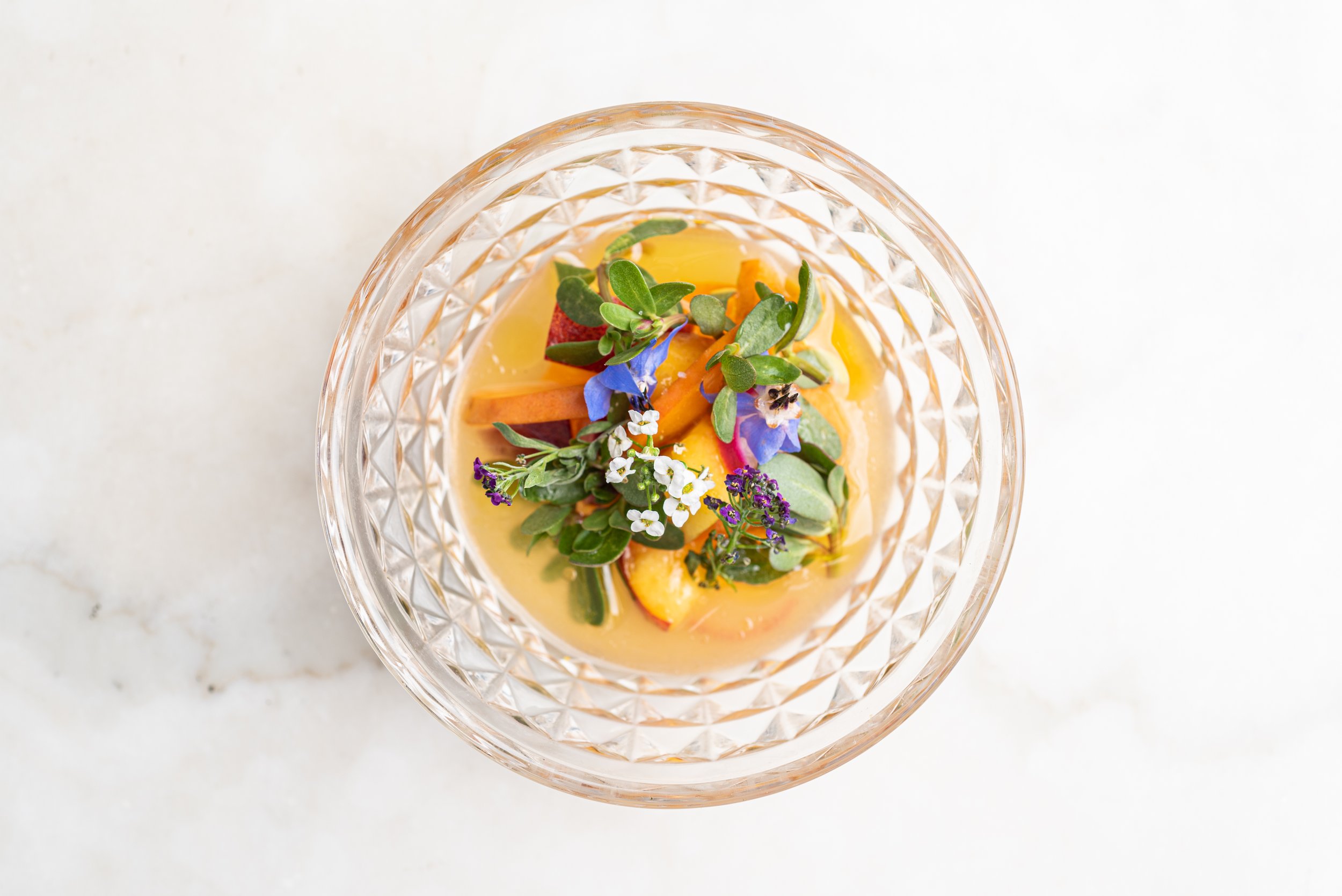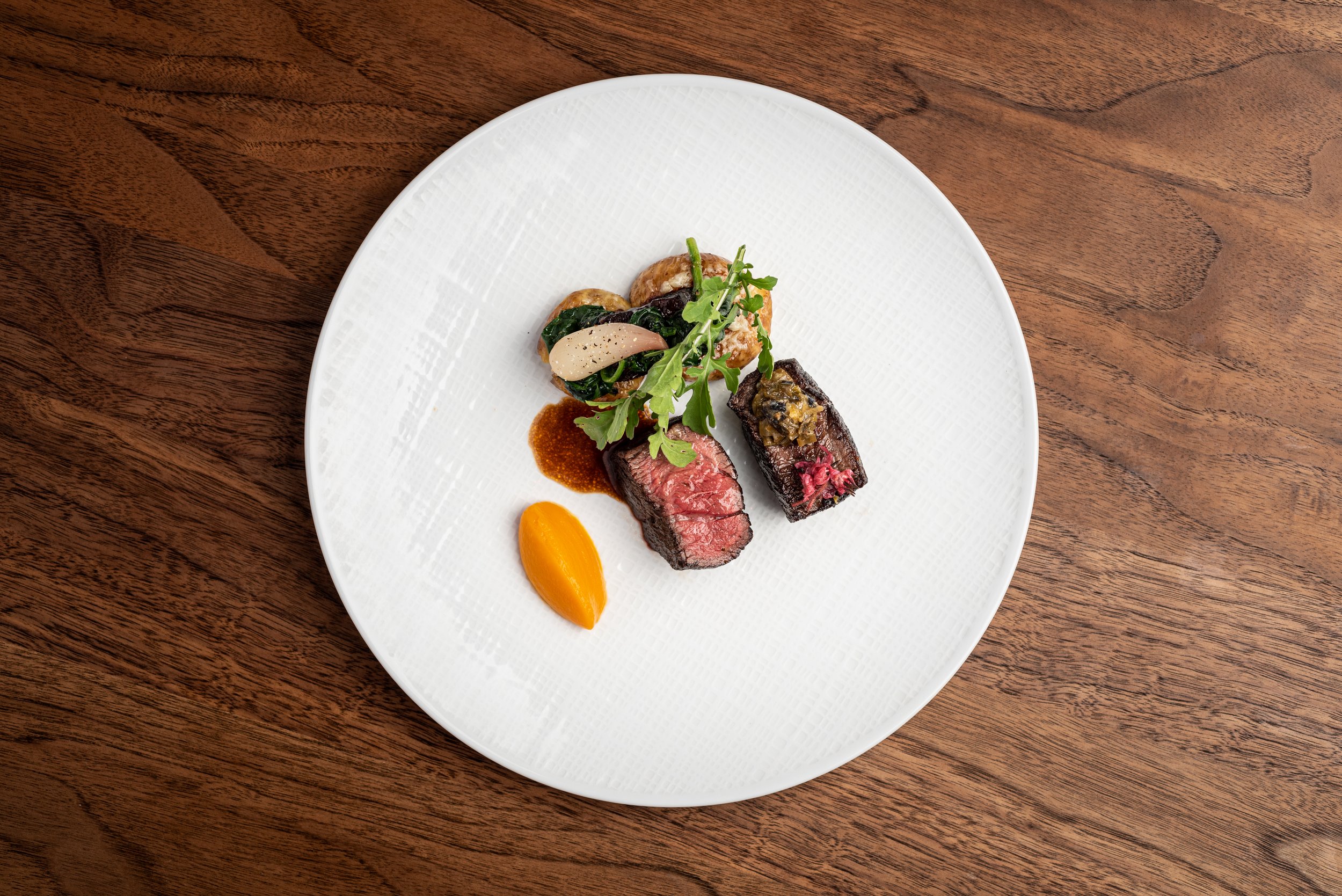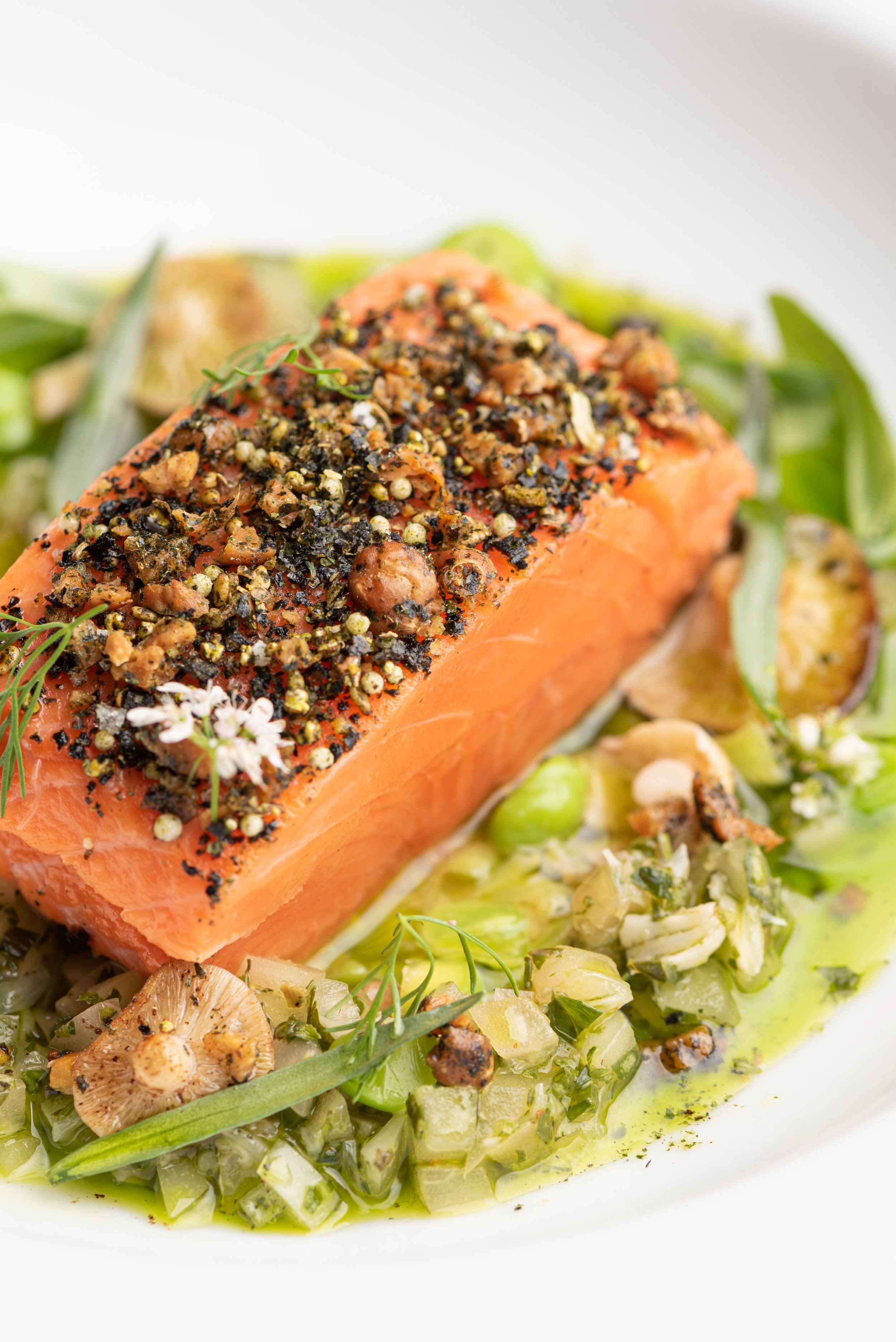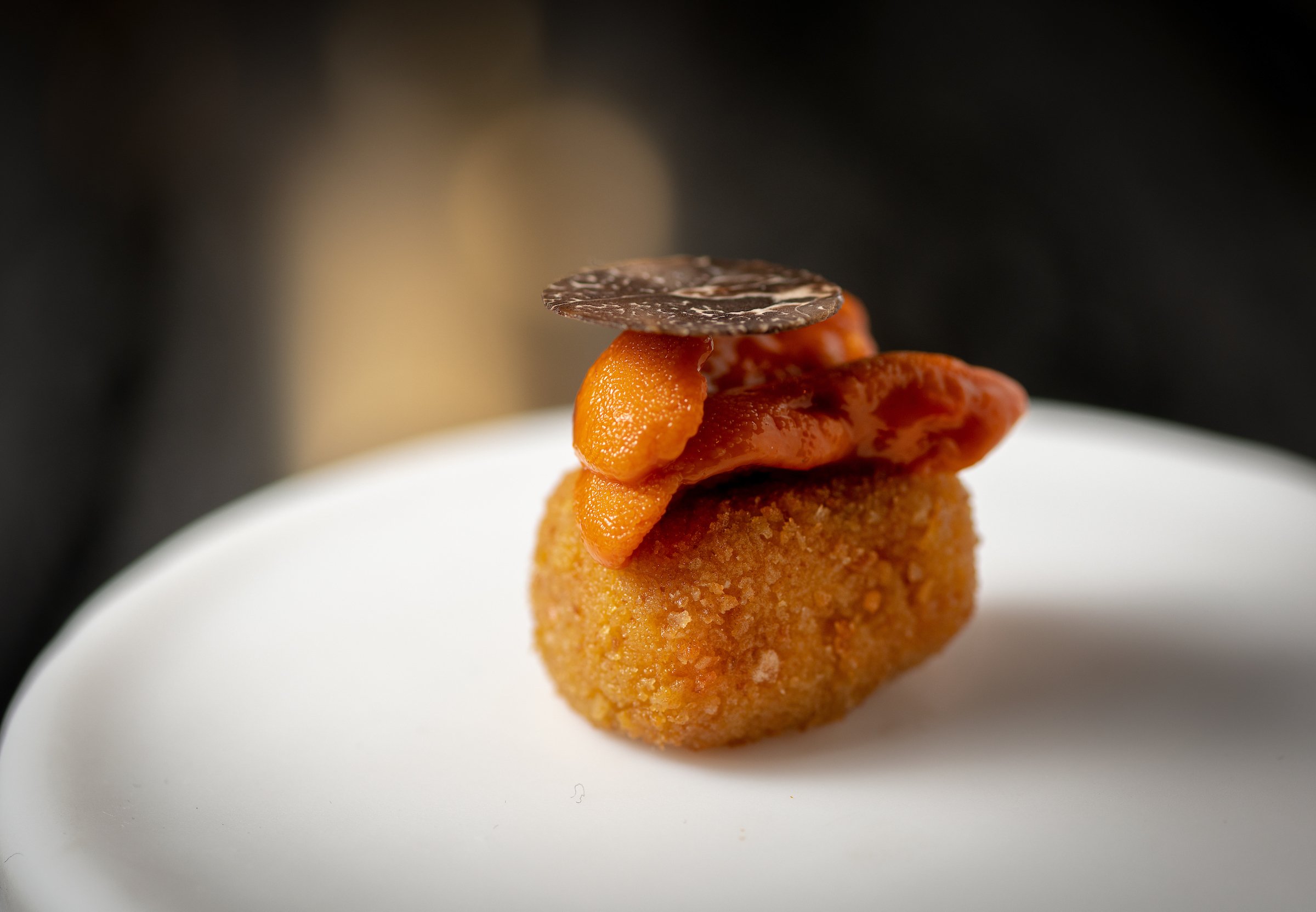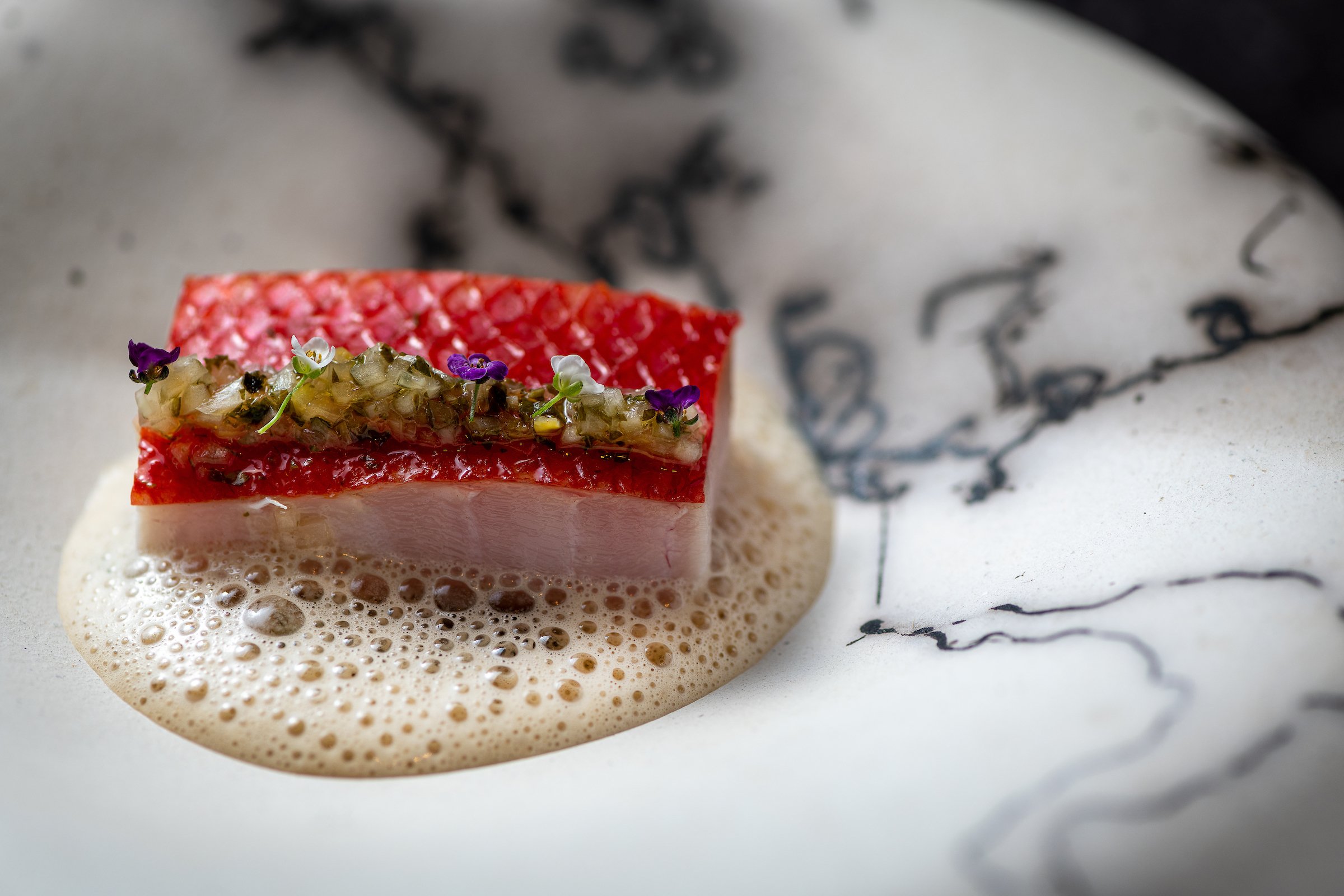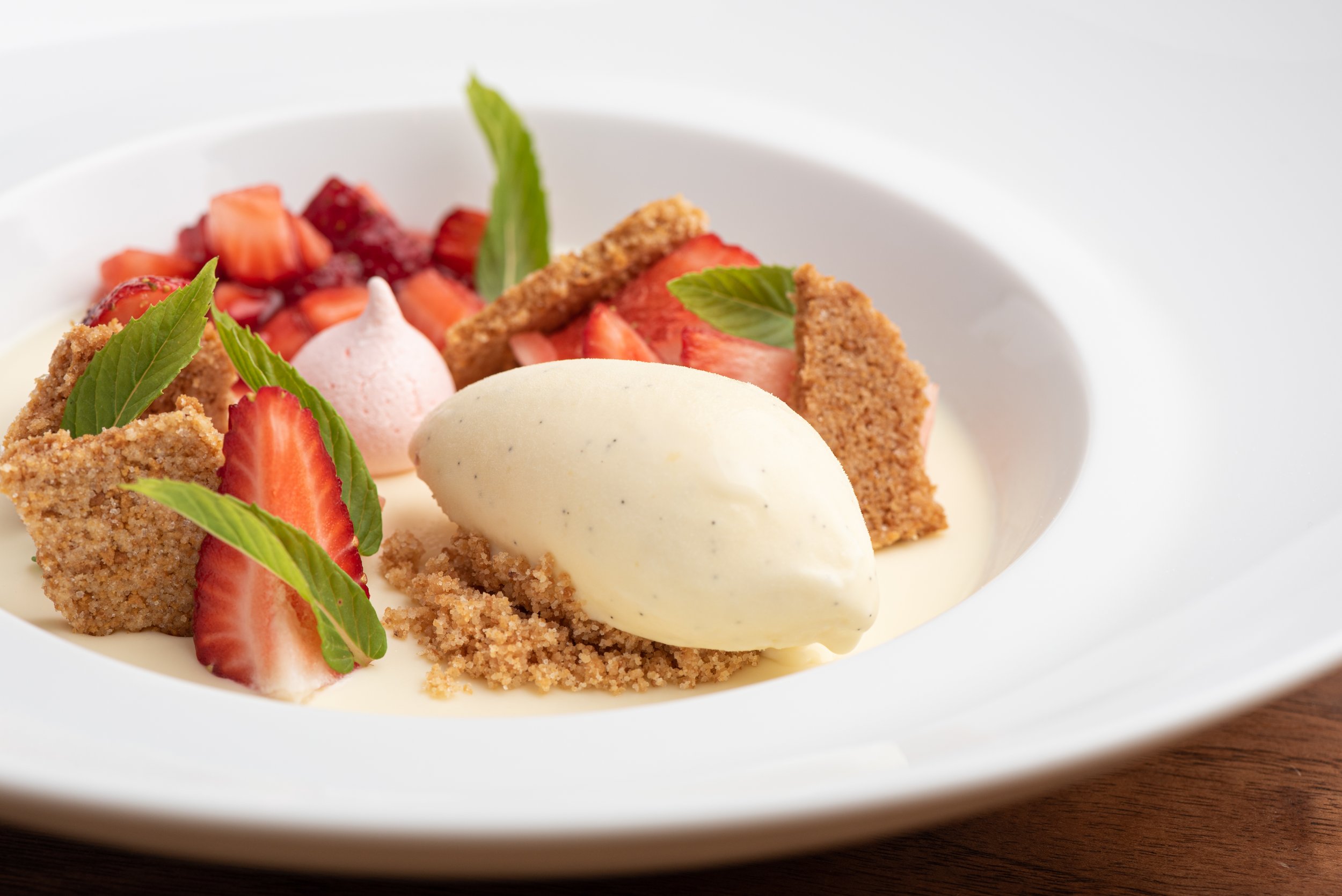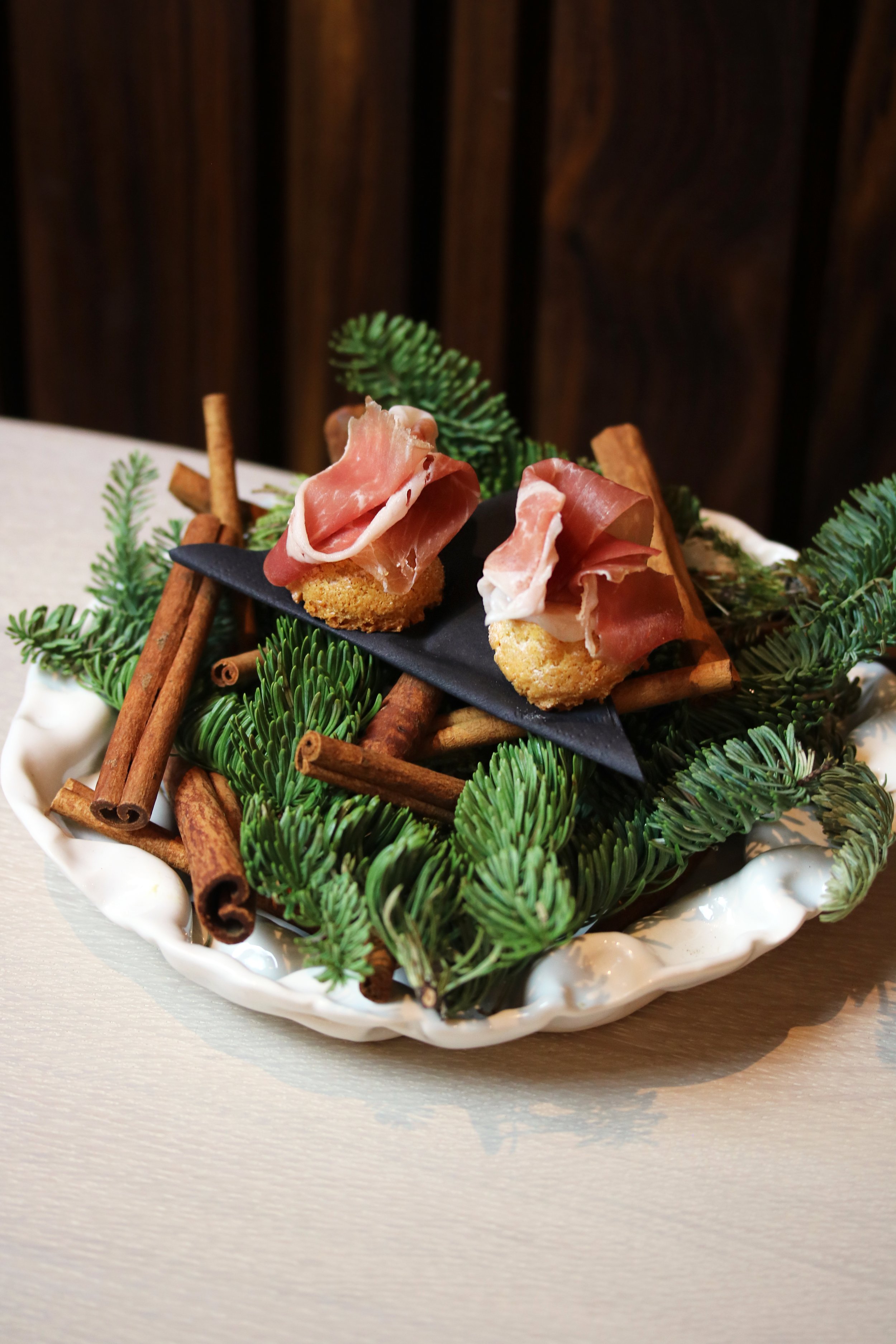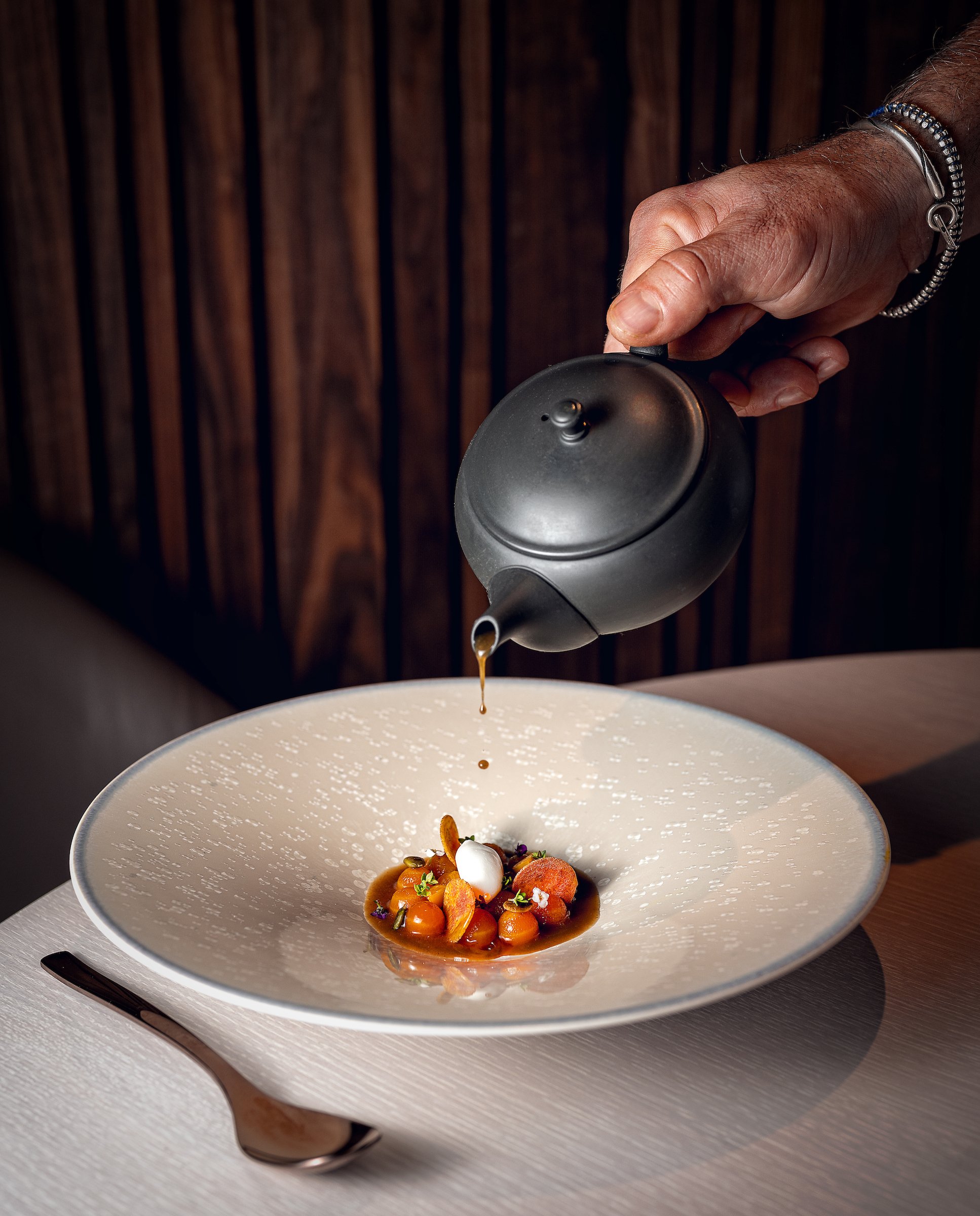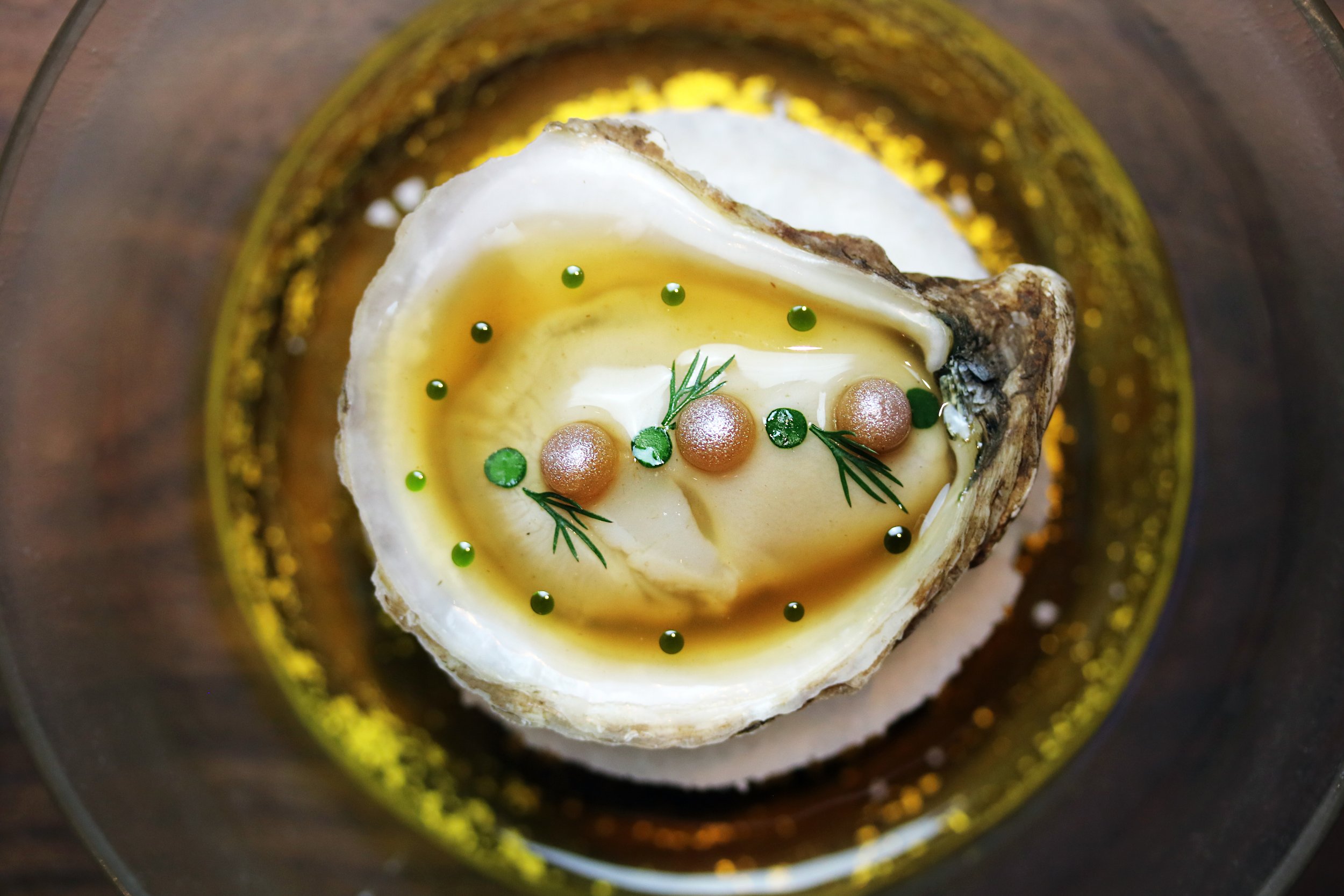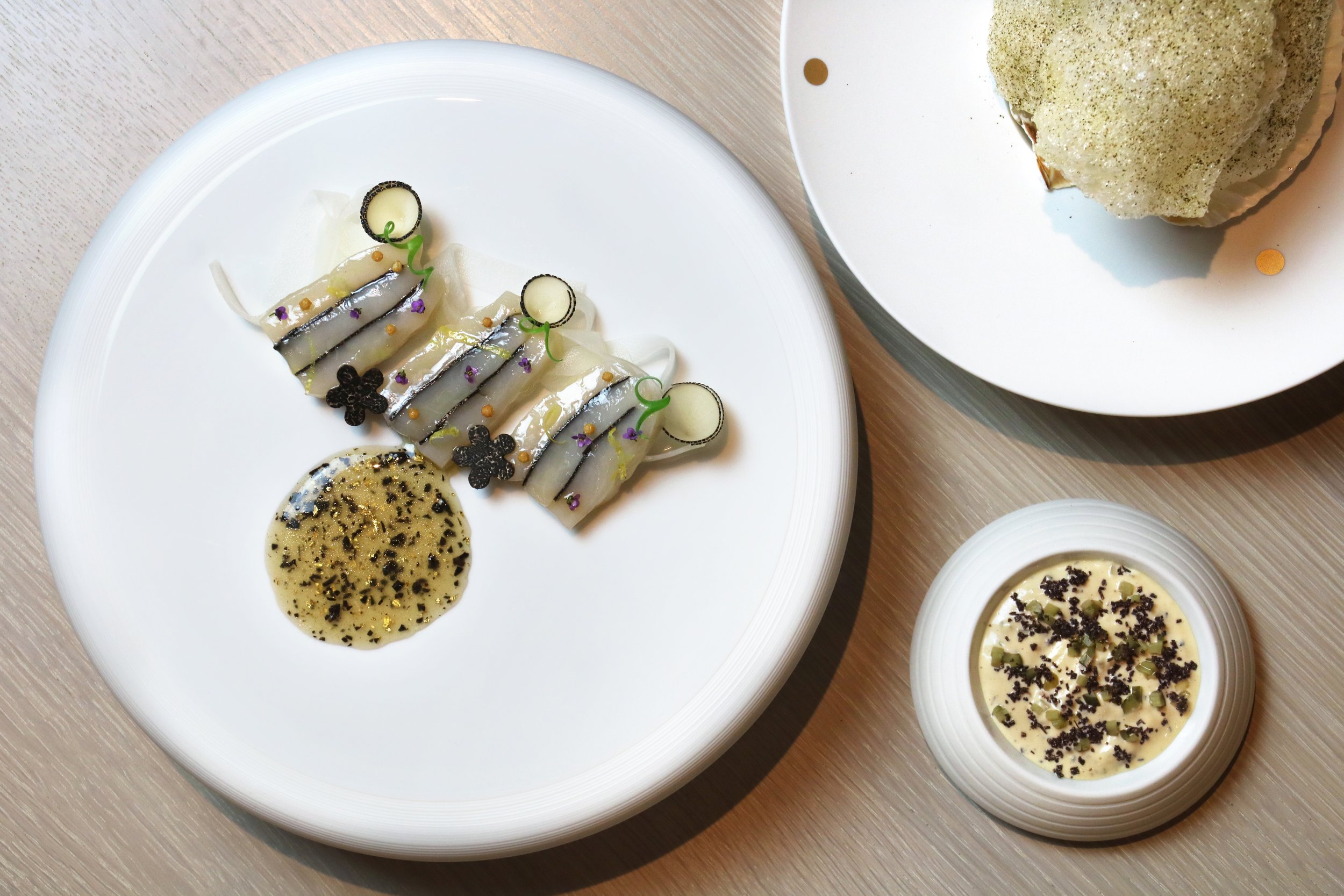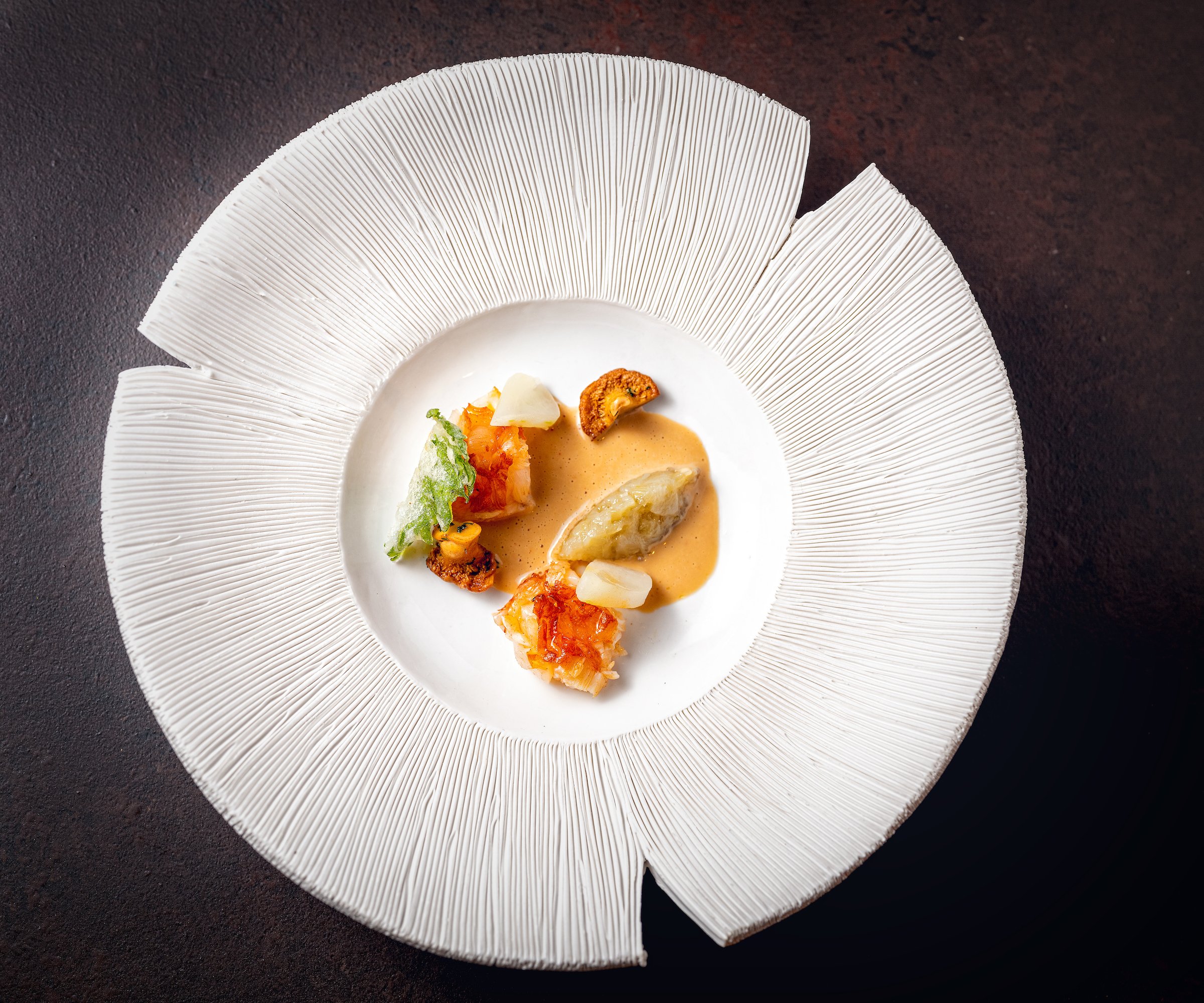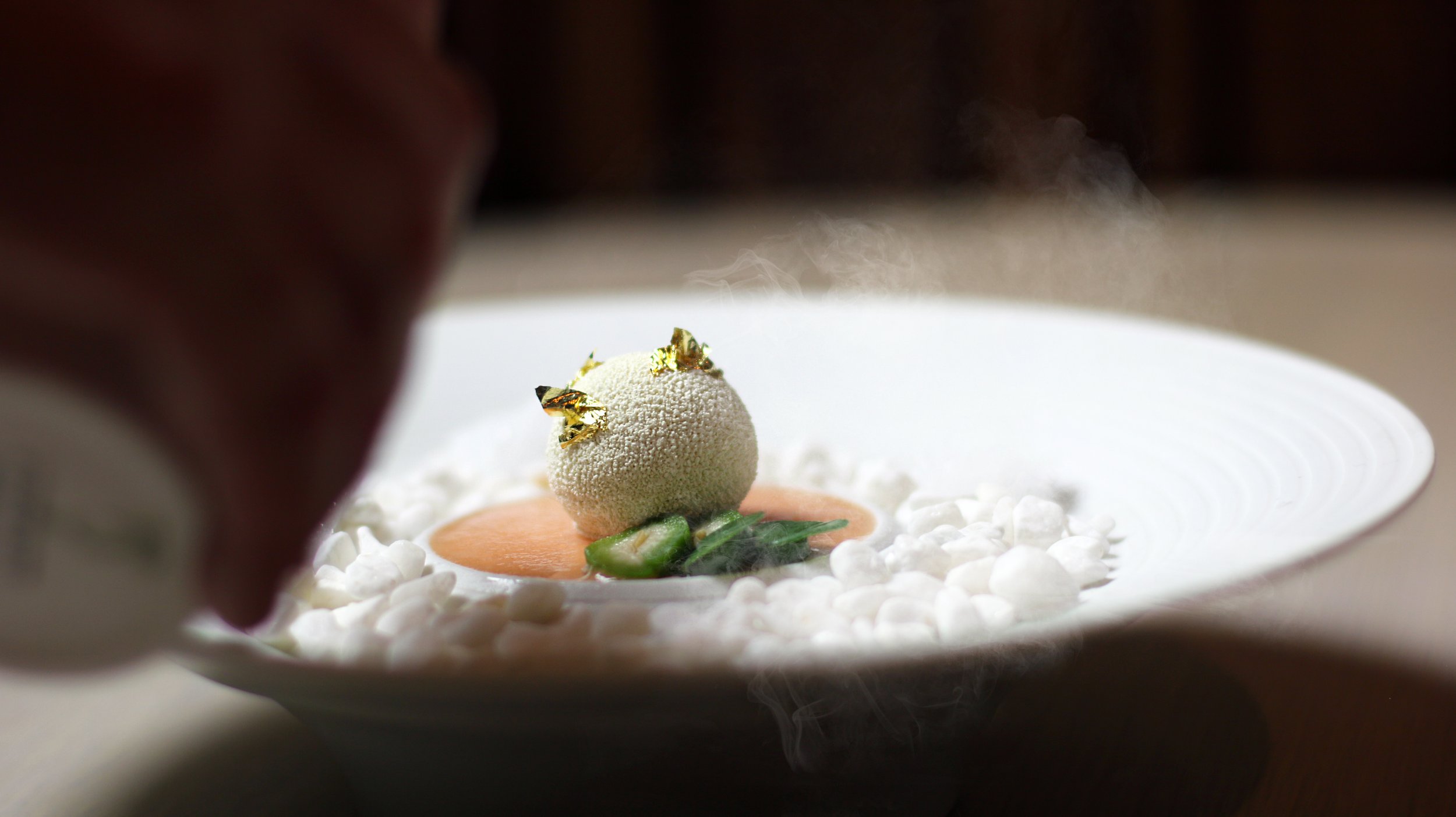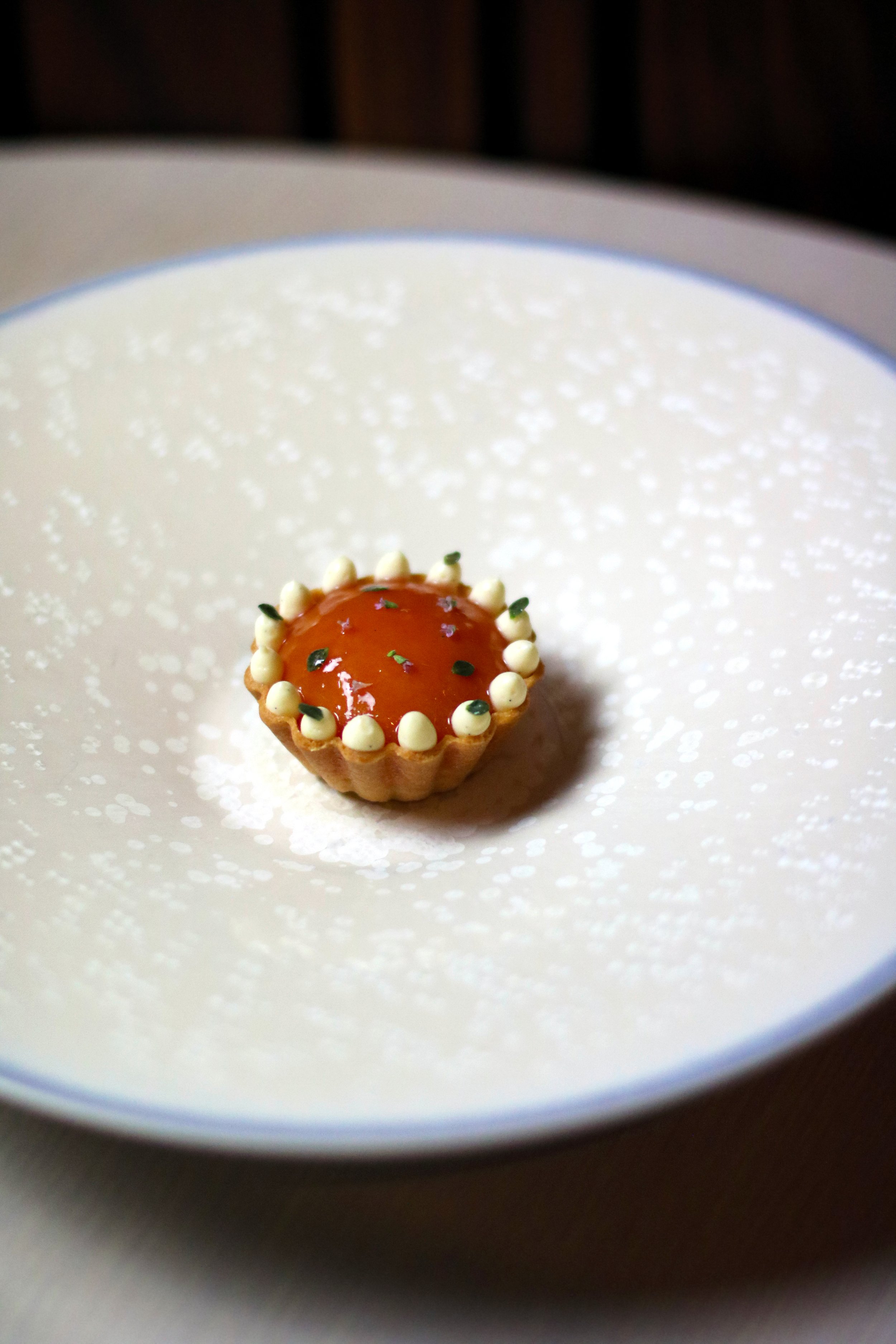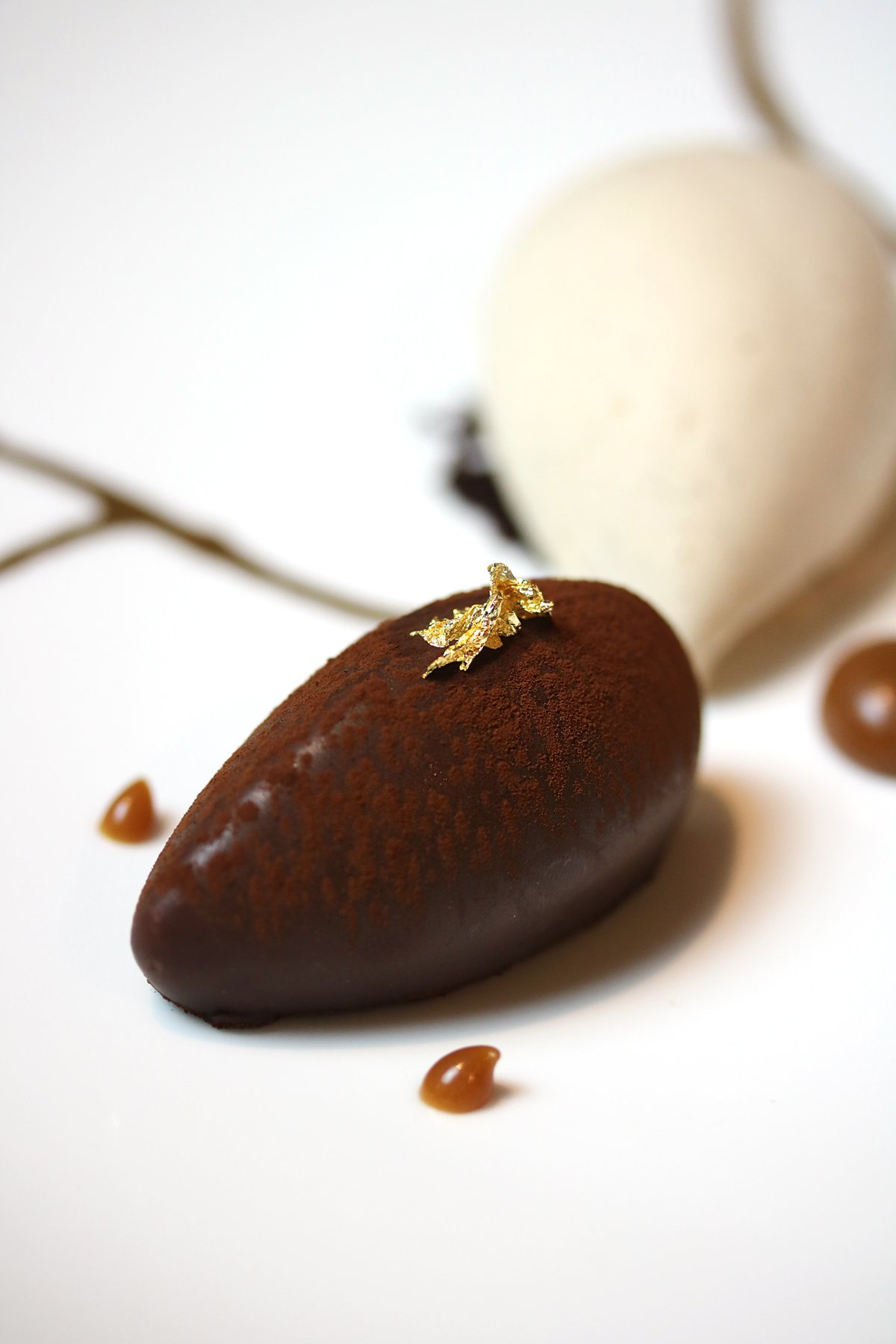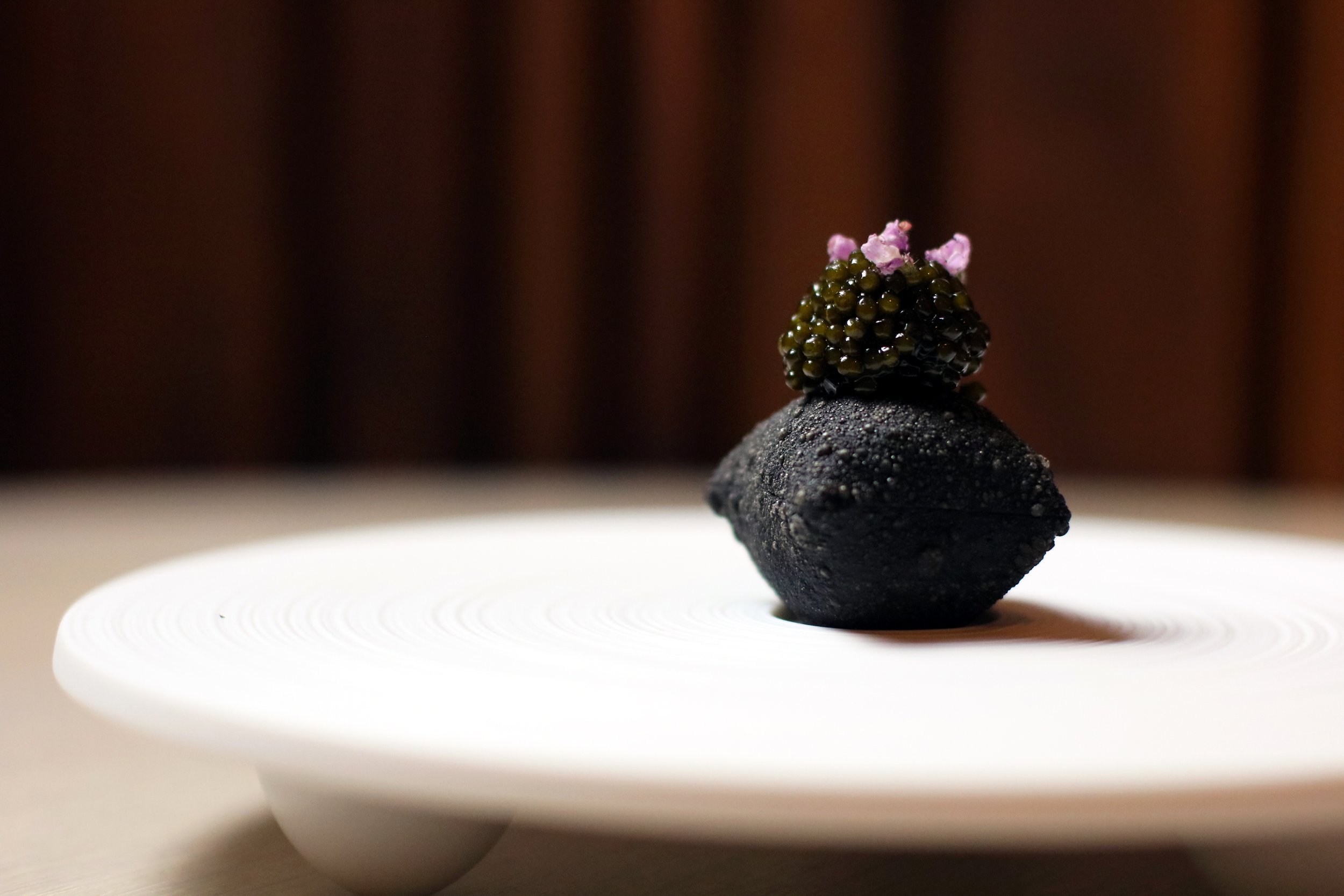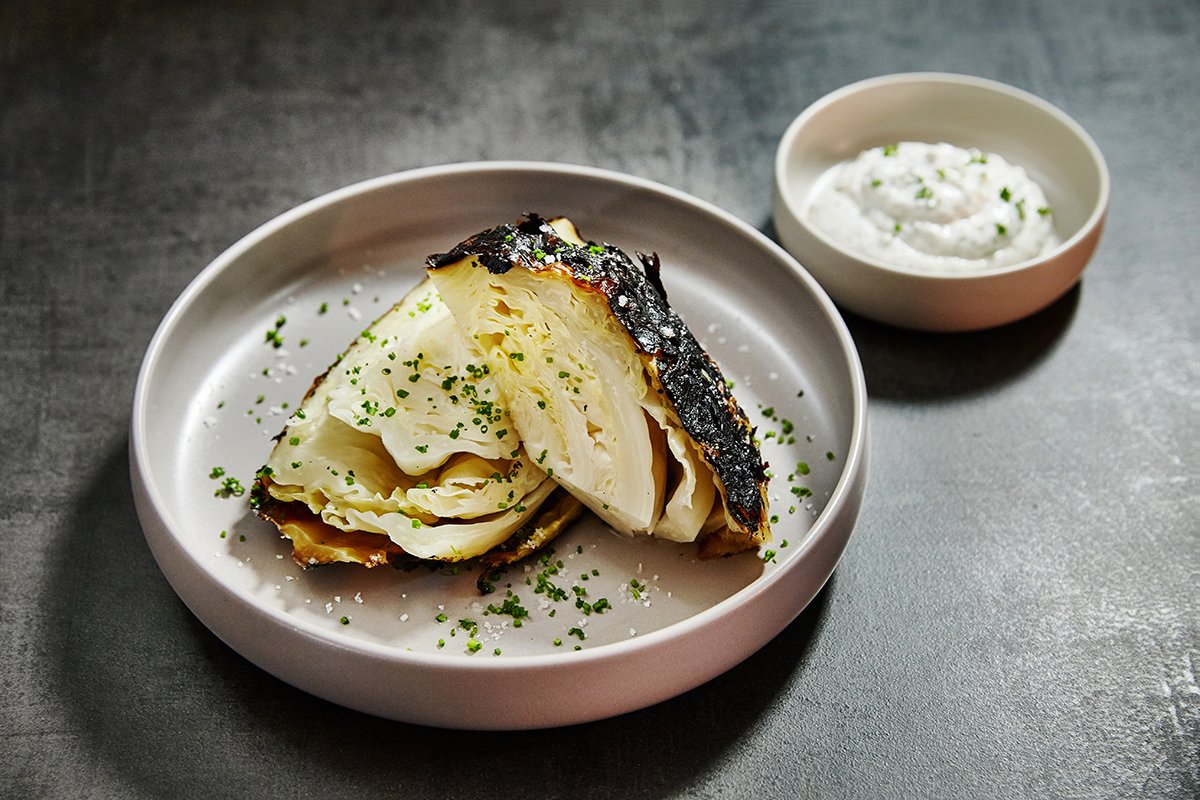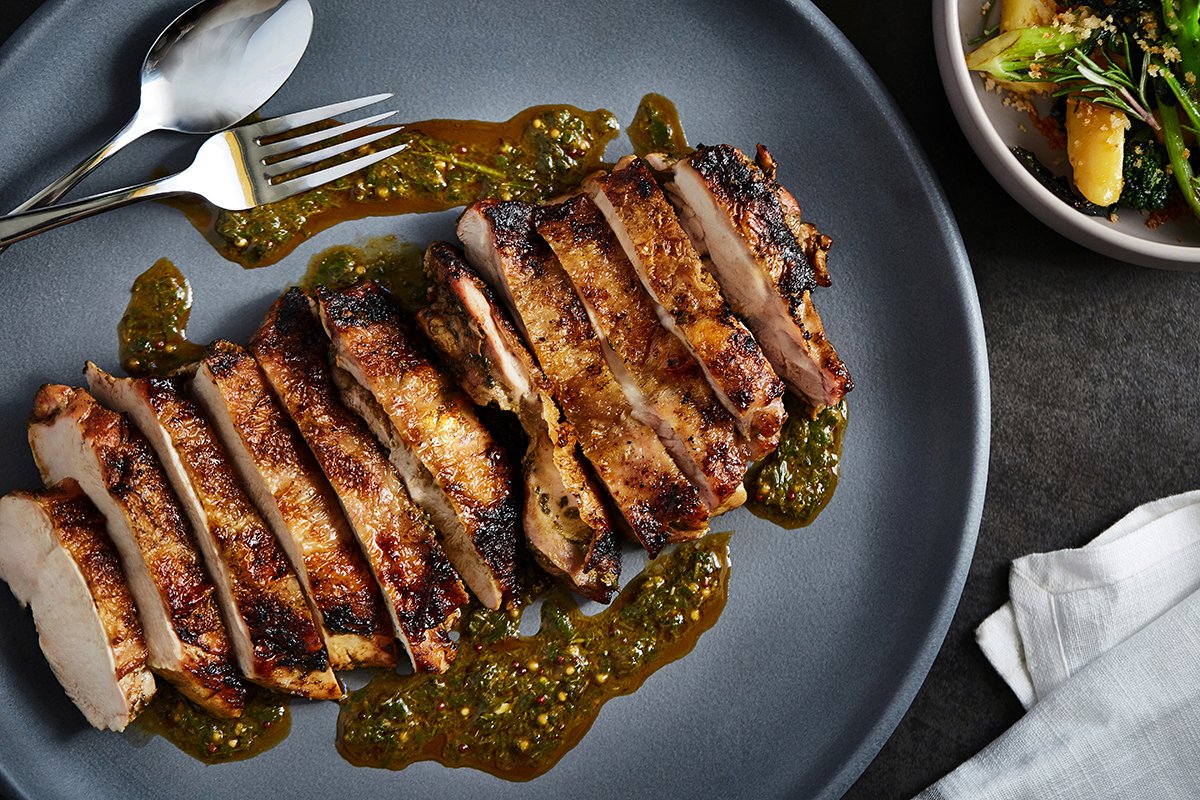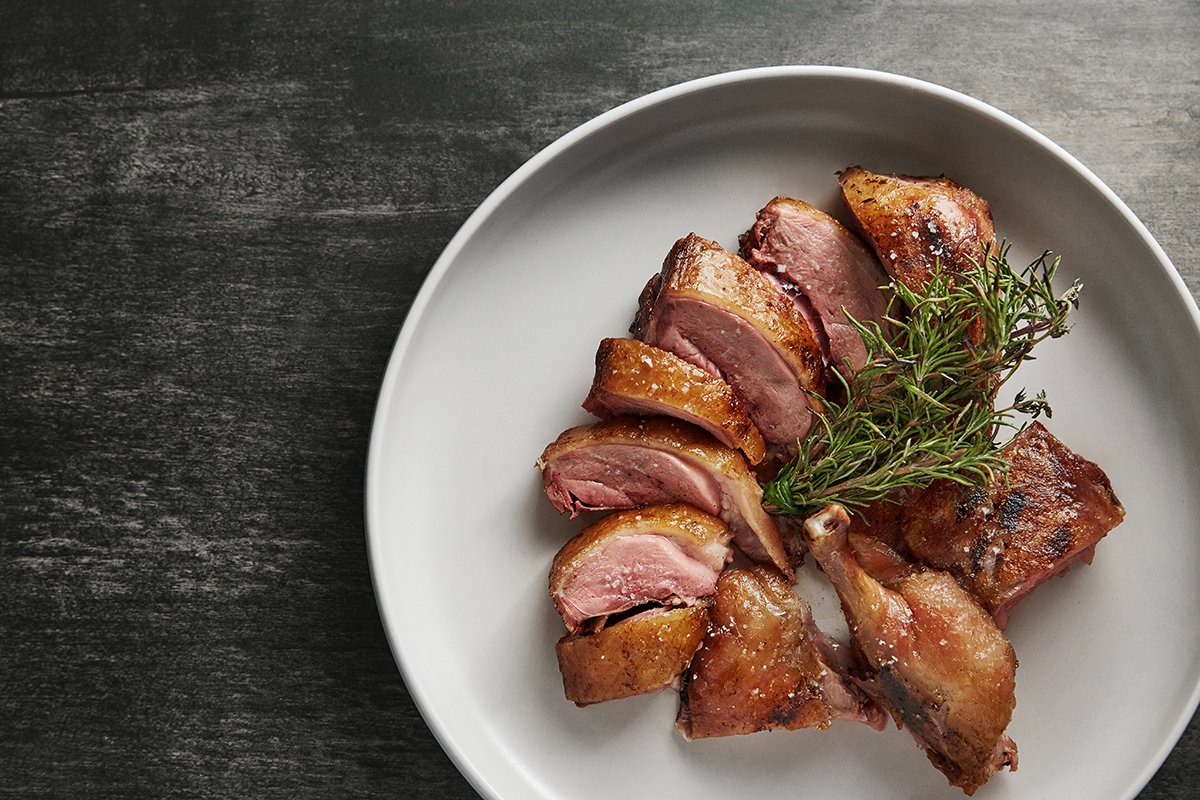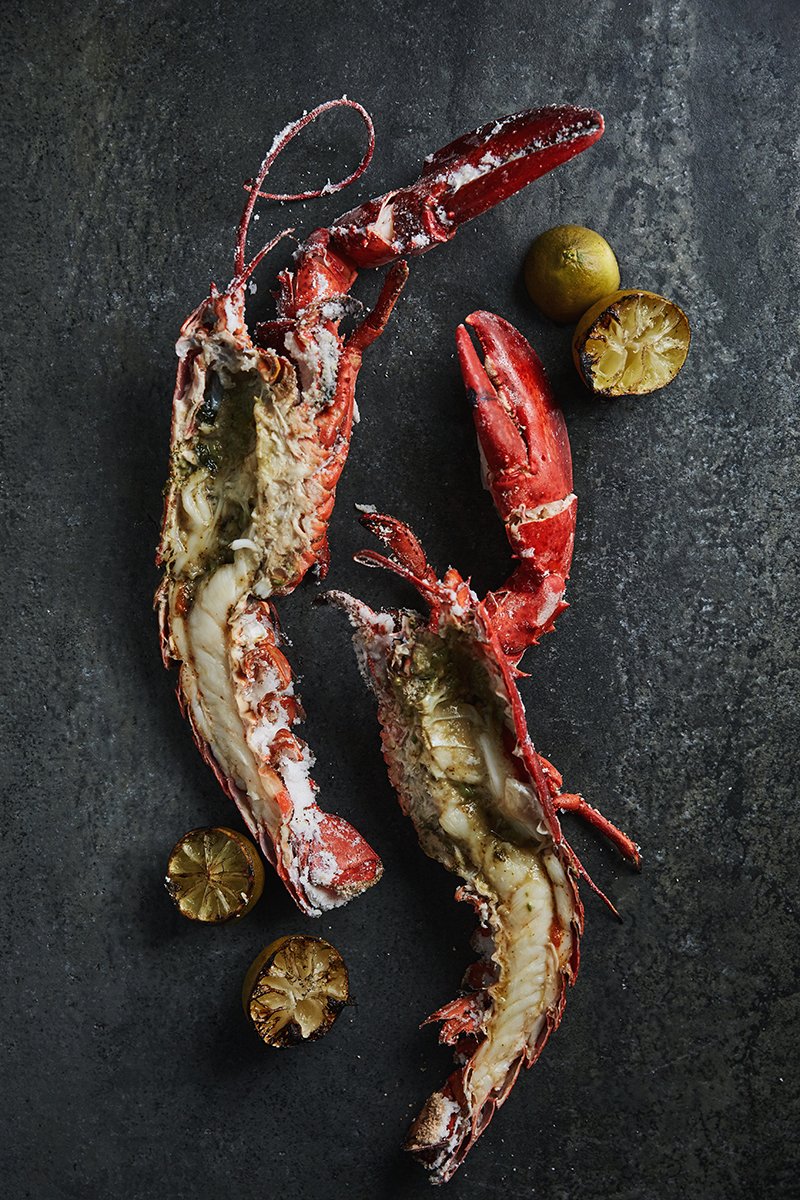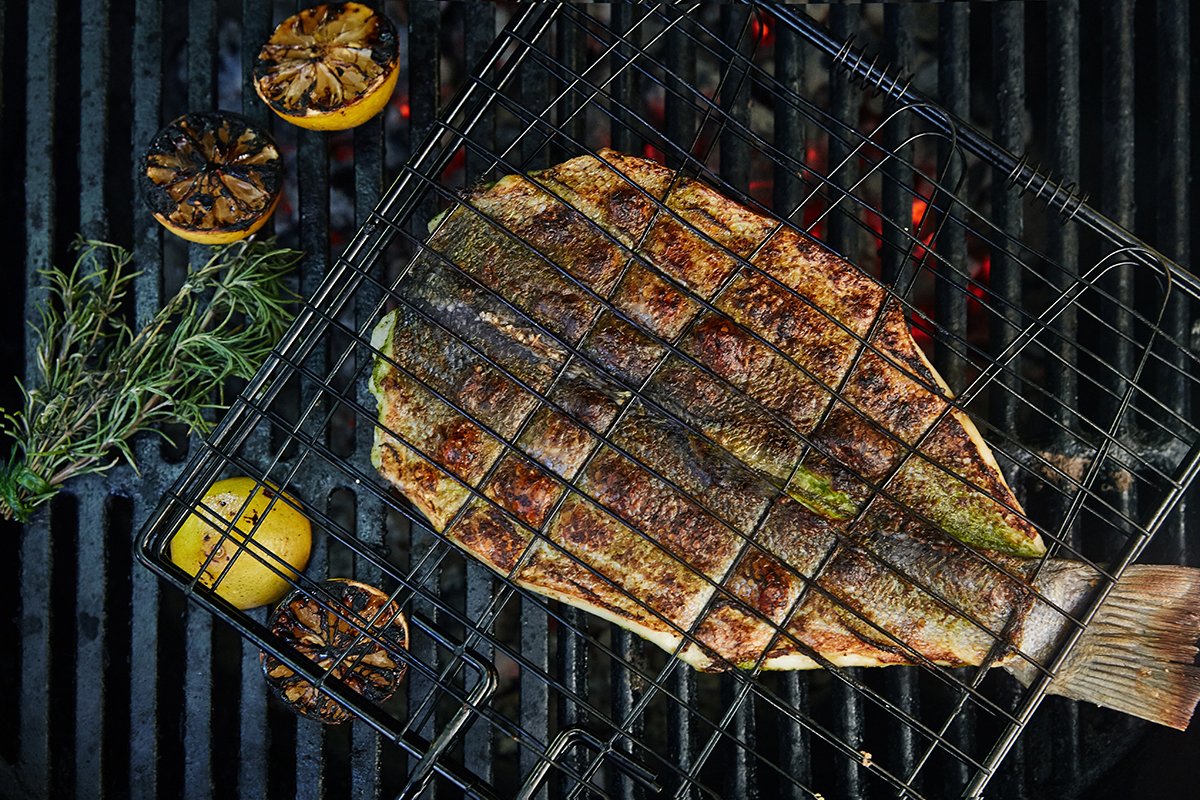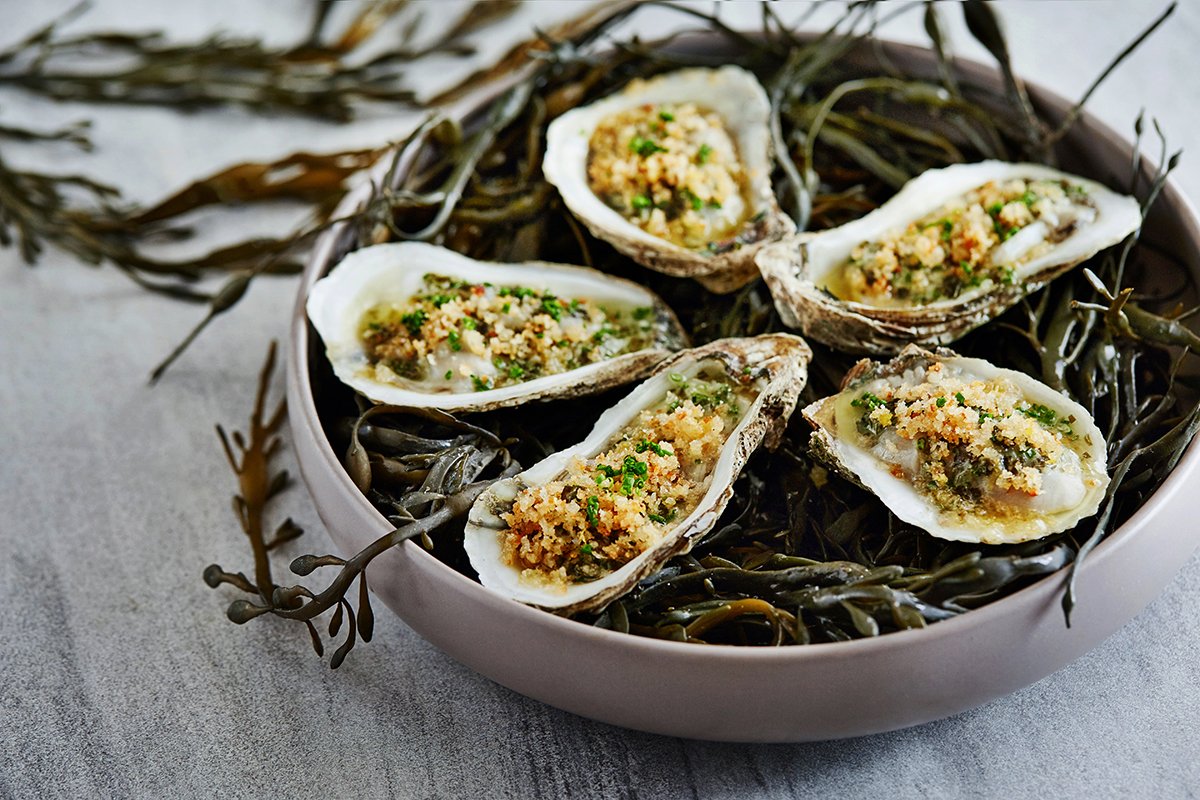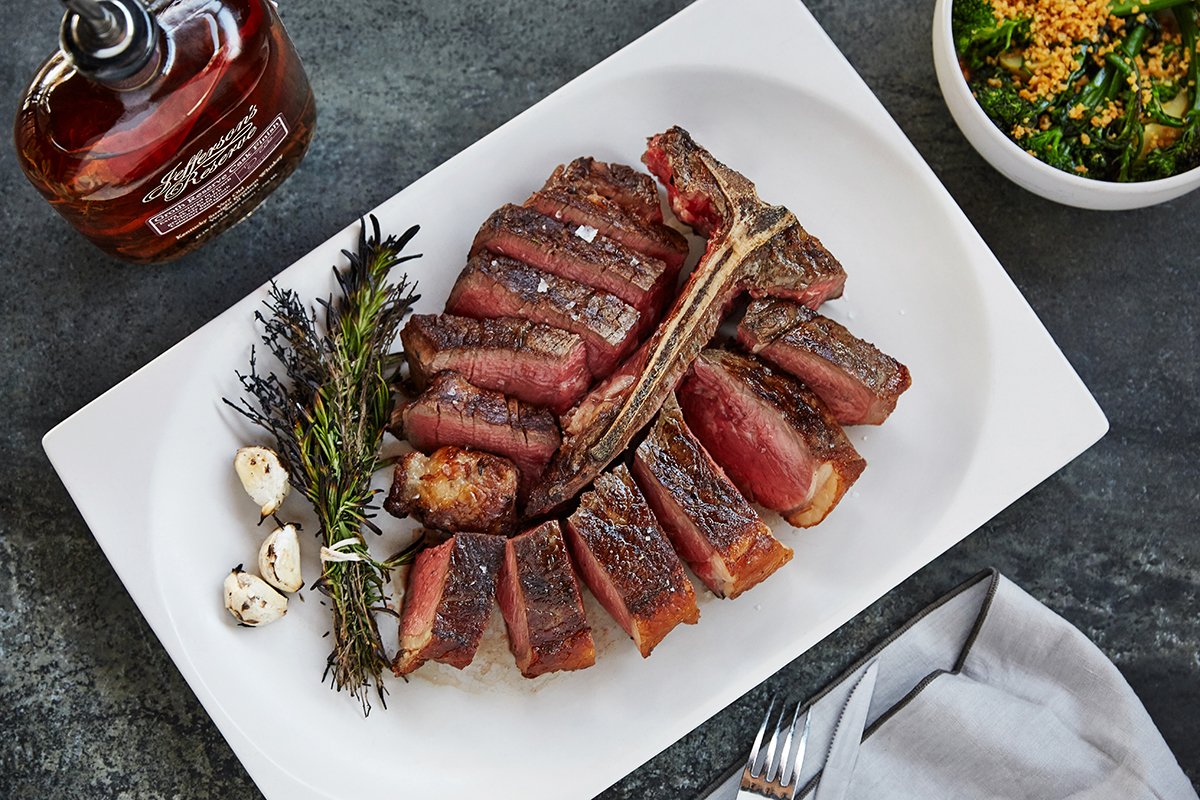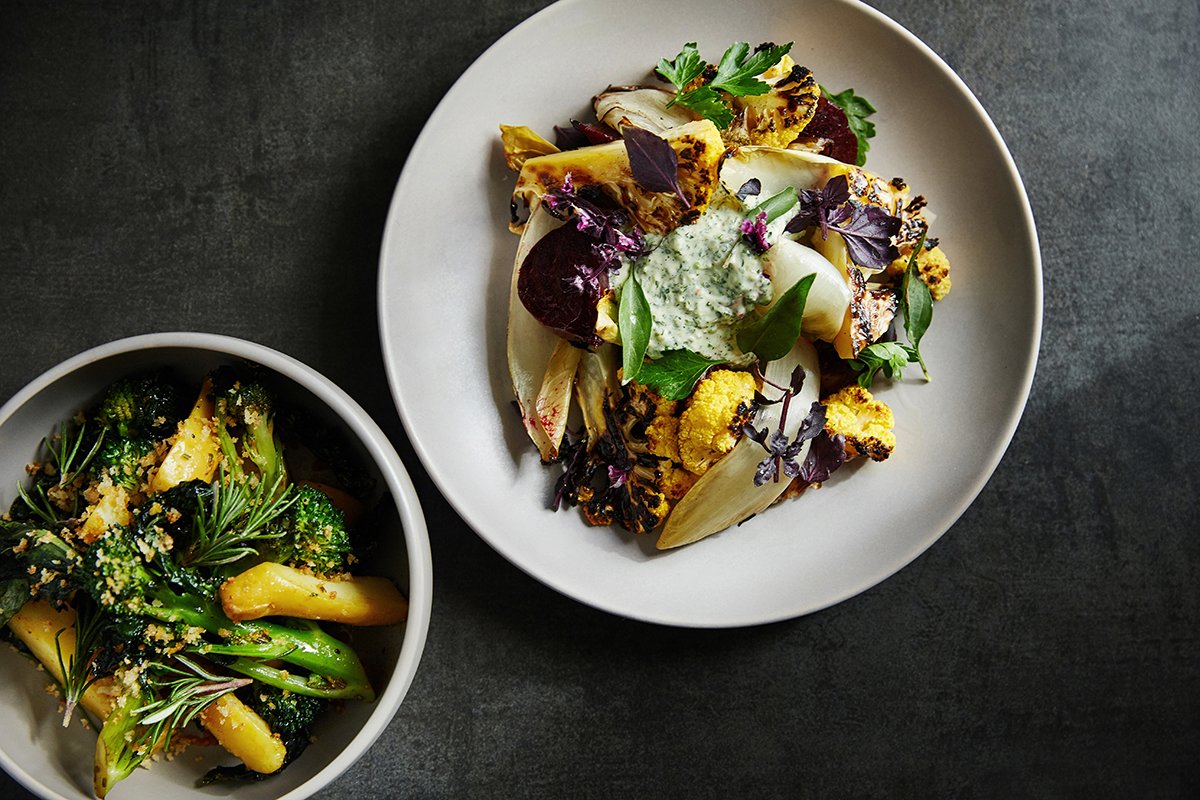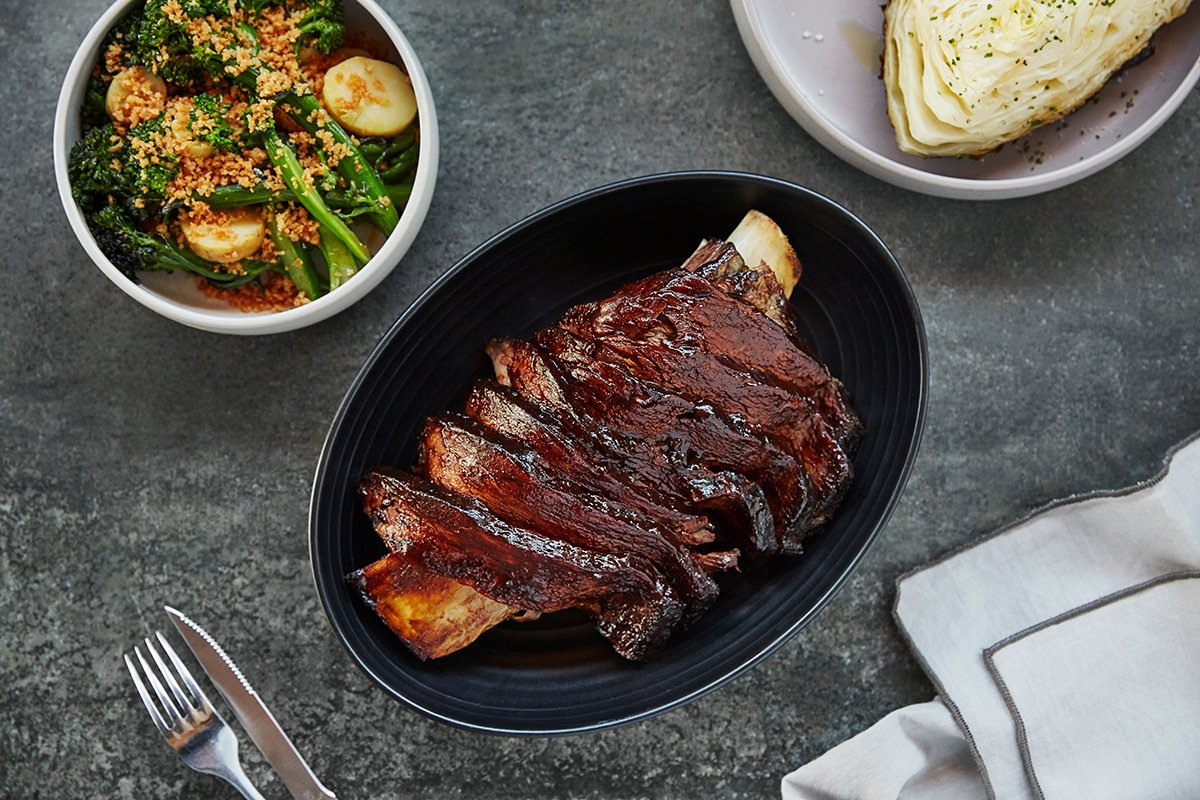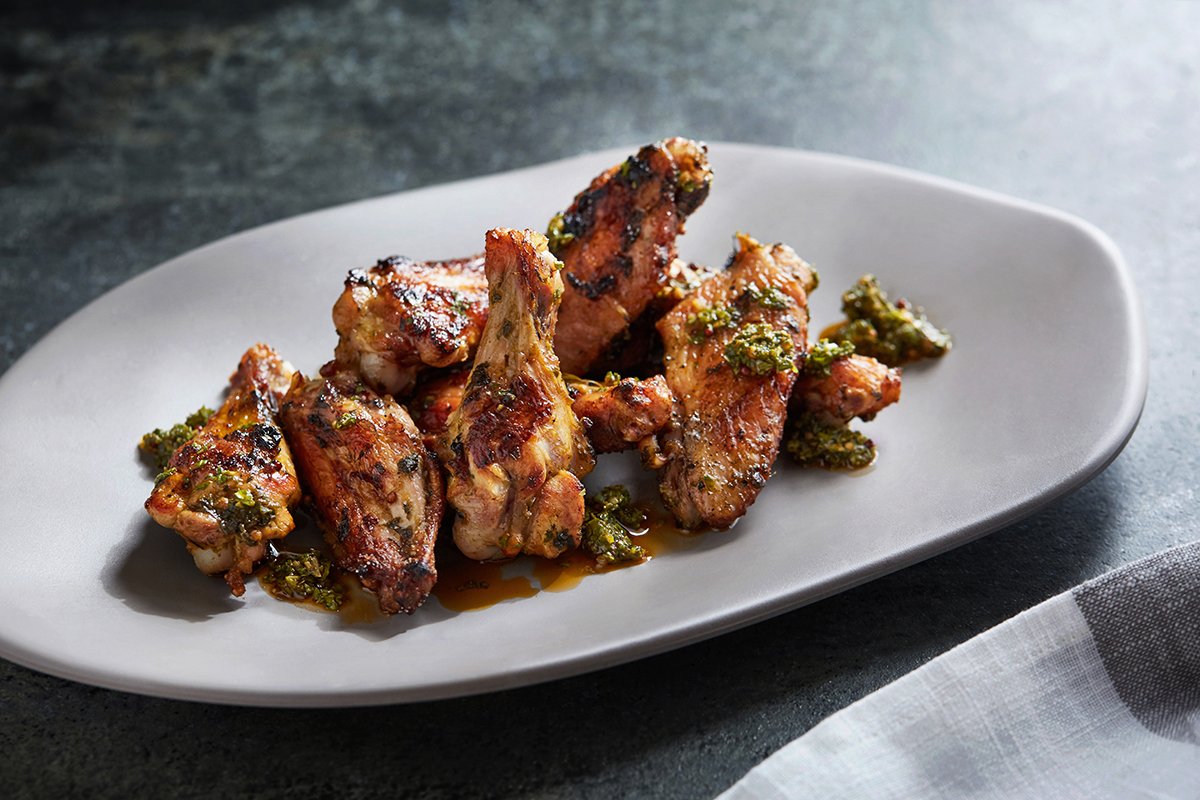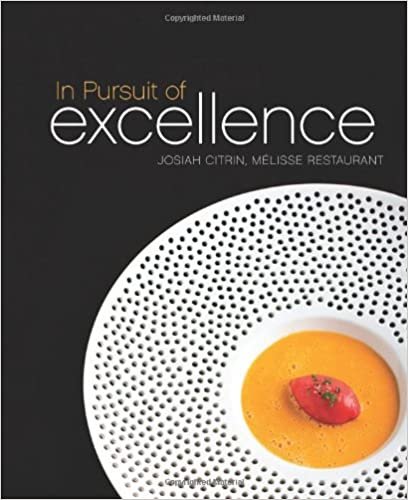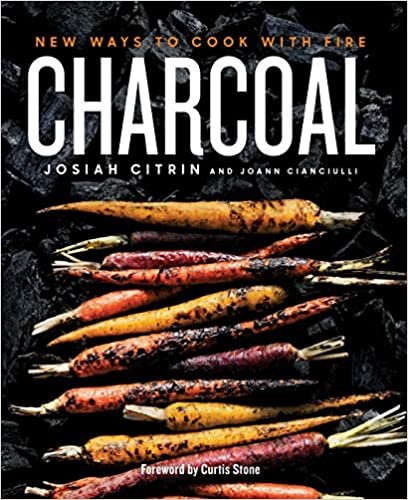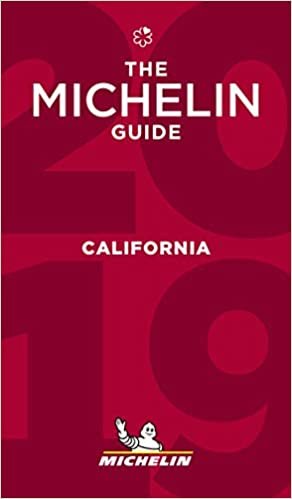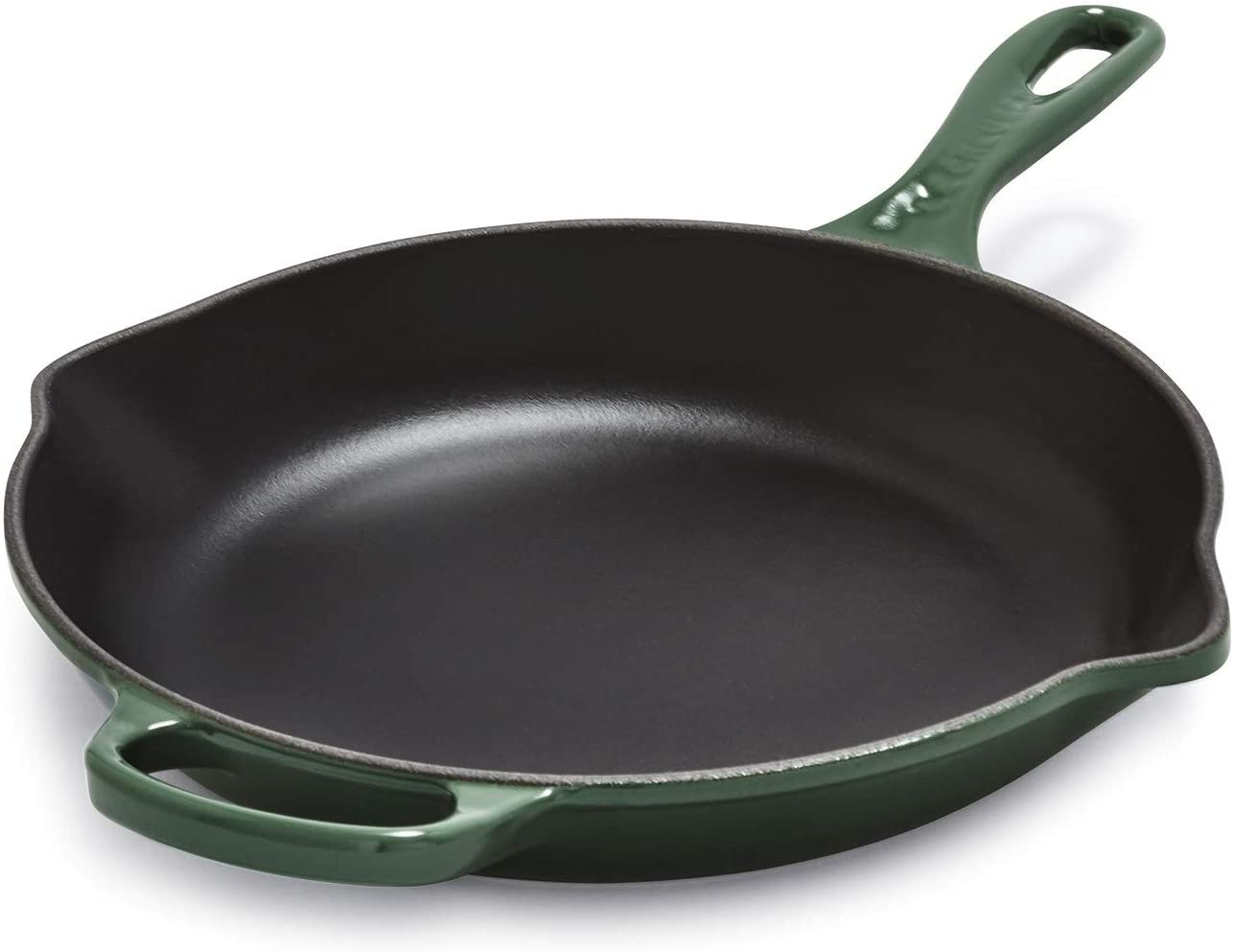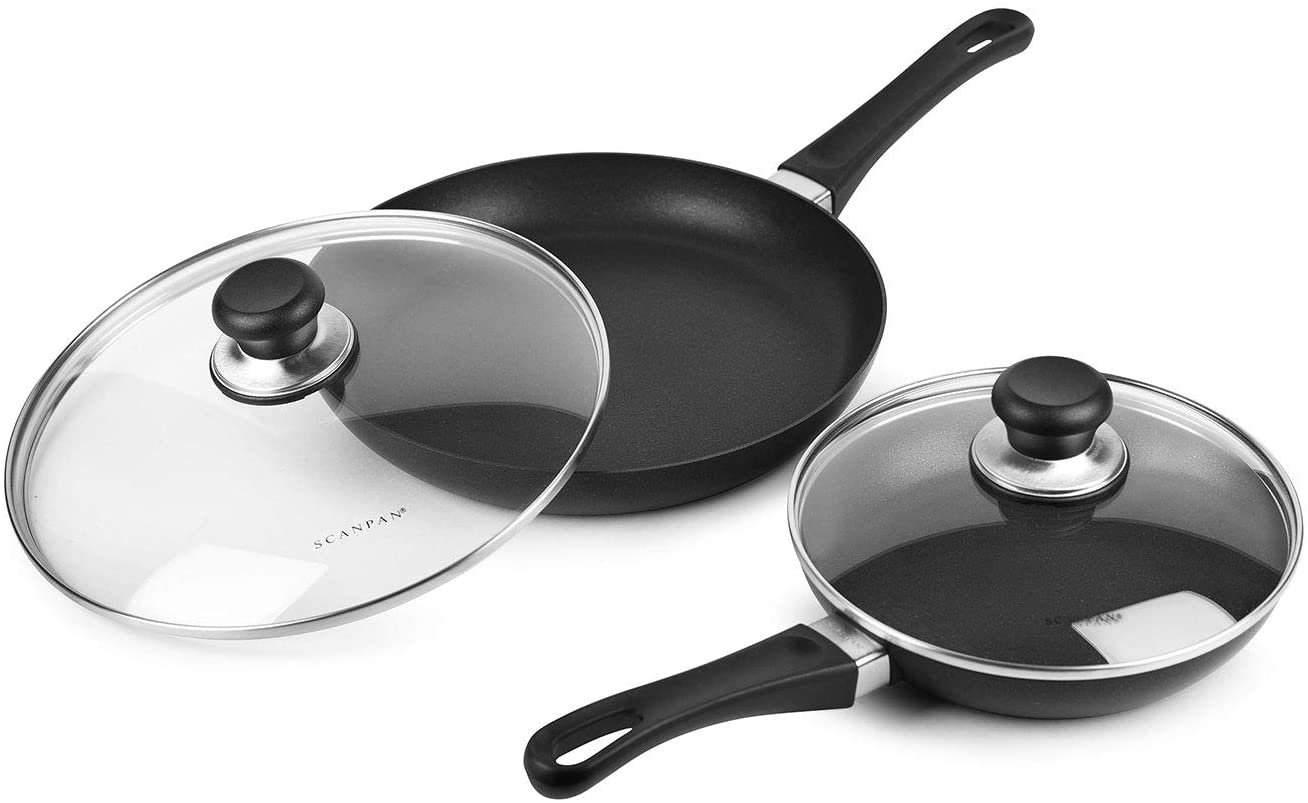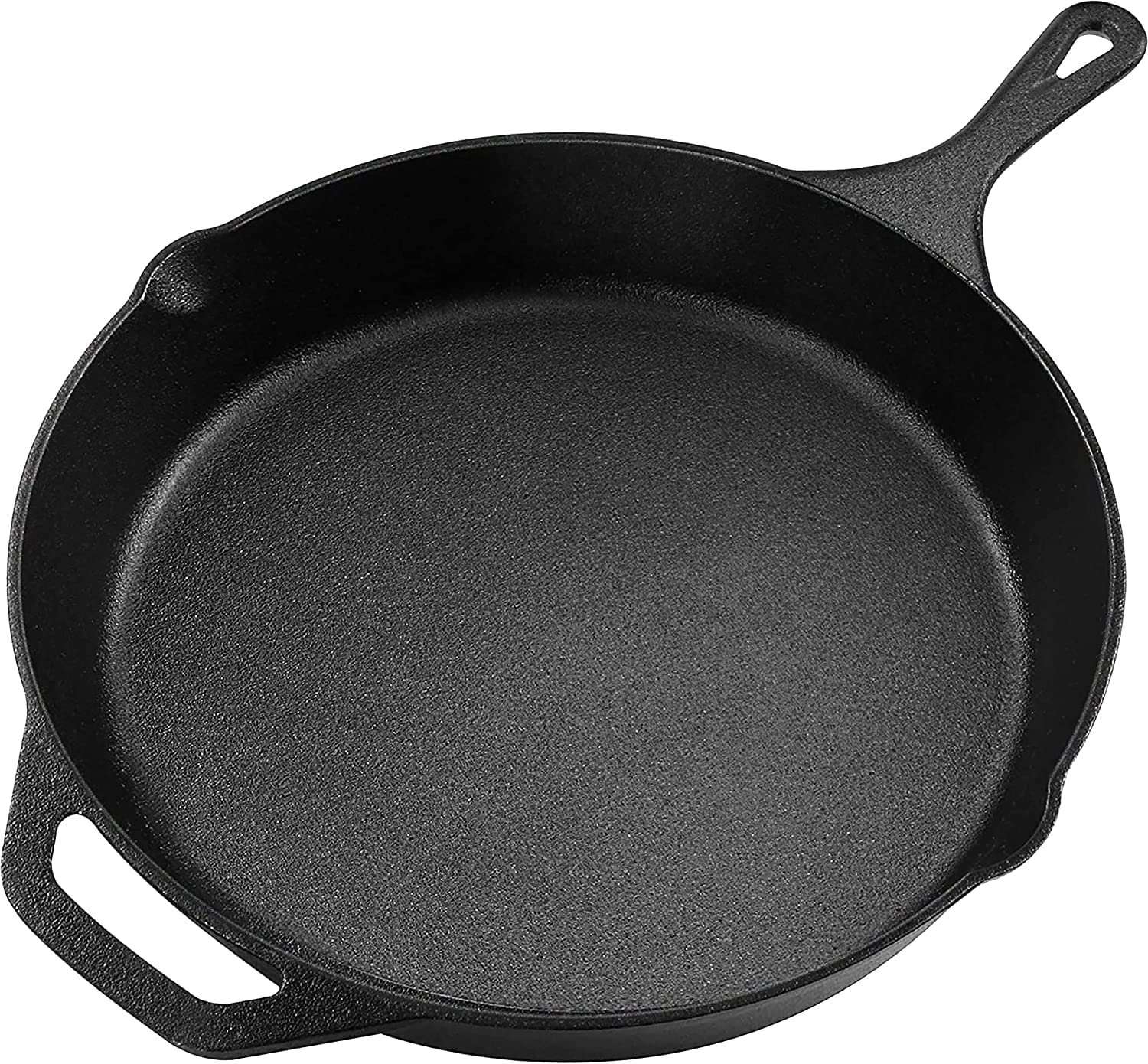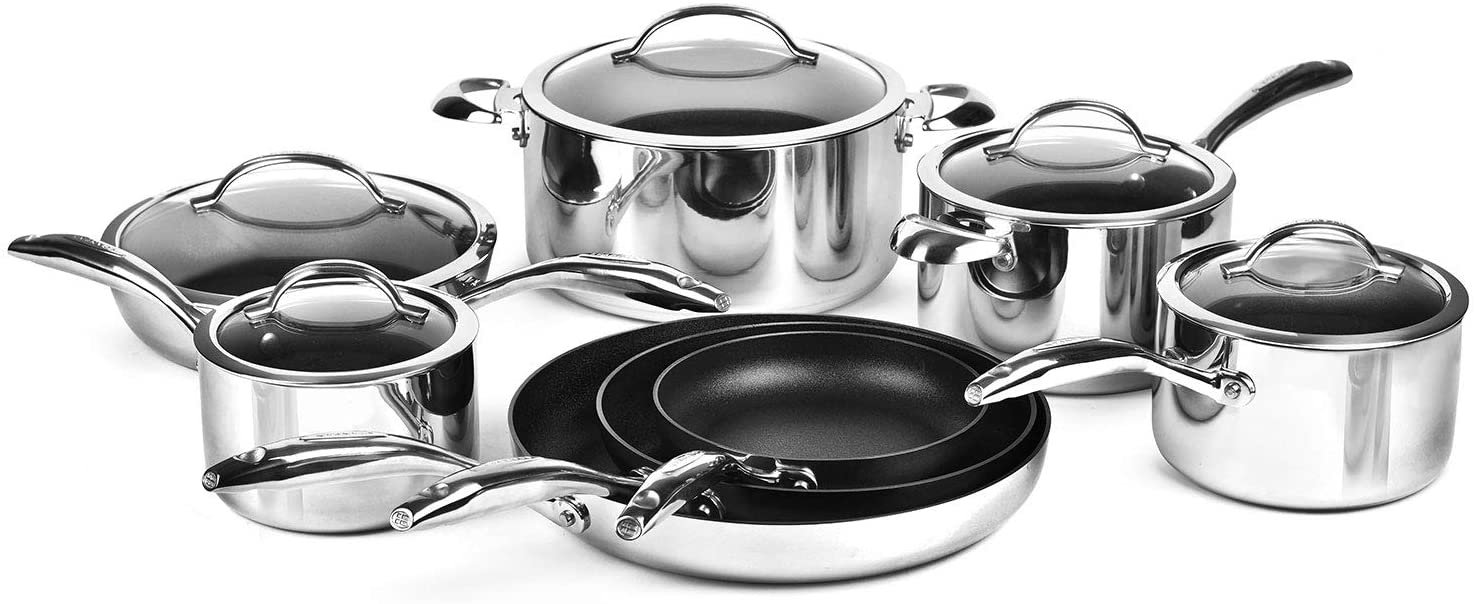Cooking & Life Advice From 2-Star Michelin Chef Josiah Citrin
2-Star Michelin Chef, Josiah Citrin
Josiah Citrin is one of the best chefs in California and the world. He has the distinguished honor of being a Michelin Star chef, having received 2 Michelin Stars multiple years in a row for his famed restaurant Mélisse in Santa Monica, California. He has appeared on “Hell's Kitchen”, “After Hours with Daniel” (Boulud) and trained Aaron Eckhart for several months for his role in No Reservations. His other awards include: Best Chef of the Year by Los Angeles Magazine, #1 American-French Restaurant for Food in Los Angeles by Zagat, Top 100 Restaurants in the World by Elite Traveler, Five Stars by Forbes Travel Guide, Top Ten New Chefs in America by Food & Wine magazine, #1 for Top Food in Los Angeles, and the Wine Spectator Best Award of Excellence. To say that he is at the top of his game would be an understatement.
Mr. Citrin's approach to cuisine pairs the classic French techniques that he learned in the kitchens of Paris with farm-to-table produce that he personally sources from the farmer’s markets of LA. He has been an entrepreneur and restauranteur ever since opening his first establishment back in 1996. Since then, he has opened multiple restaurants around Southern California, including Mélisse, Citrin, Charcoal Venice, Openaire, and Dear John’s. He has also authored two books: In Pursuit of Excellence and Charcoal: New Ways to Cook with Fire: A Cookbook. With no formal culinary training, Mr. Citrin is truly the epitome of hard work and determination paving the road to success and accolades.
A few months back, my friend invited me for happy hour at Citrin. As we were blissfully enjoying the ambiance, expertly-crafted cocktails, and art-like food, a spiky-haired man in chef’s garb walked out of the kitchen. I immediately recognized him as the lauded chef and decided to shoot my shot. I walked right up to him and asked if he’d be willing to let me interview him for my blog, and he graciously said “Yes”. There is a life lesson in there somewhere - sometimes you just have to summon up the courage to ask for what you want! In this interview, we dive deep into the people, places, and philosophies that have led Josiah Citrin to become the culinary force he is celebrated as today.
Mélisse: Josiah Citrin’s 2 Michelin Star award-winning restaurant in Santa Monica, California
At what point did you realize cooking was your passion?
I grew up with a French grandmother who cooked a few great dishes on weekends when I’d go stay with them. My mother was a caterer, and she catered out of our house. I was always around cooking and I used to help out just to make some extra money to go surfing, but I wasn’t really into it that much. I don’t know exactly what happened, but in 11th grade when everyone was getting ready to go to college and figuring out what to do next, I said “I think I want to be a chef.” I’m not sure what brought it on, it just happened.
That was 1984 when Wolfgang was getting popular - chefs were becoming more of a thing and it seemed interesting to me. I started cooking. I went around and asked a bunch of different chefs if I should go to school or start working, and the consensus was that I should just start working. So I started working.
Grandmas are the best - I still dream of the dishes my grandma made! Were there any dishes that your grandma or mom made that are particularly special for you?
My mom made all kinds of delicious food. She had a great palette, great balance, great instinct, and just cooked so well. She used to make this honey-baked chicken that was unbelievable. She also made a great lamb, spaghetti with tomato sauce - everything she made was good! My grandma used to make leg of lamb with garlic inside of it, beans, chicken noodle soup, steak with creamed spinach, and the best salad dressing.
You lived in France, correct? Did you go to study there?
In 1986, I started working in LA. At the beginning of 1987, I moved to Paris and worked there for 3 years. I wasn’t fluent in French when I moved, but I learned it quickly. I just started working in restaurants, no culinary school. You learn much better that way. It’s hard to learn in culinary school because you get the most knowledge through repetition. It’s all chemistry and knowing what will happen to the food - like how much salt to put on a particular fish because the fat content is different - they can never teach you that in school, it’s through experience.
So you just went around to kitchens and asked people to give you a chance?
Exactly. Get a job and get to work. It was very difficult. You start as a commis chef, and you work all day and night, 6 days a week (they have better laws now). Start at 7am, work until 3:30pm, take a break, go back at 5:30pm and work until 12 or 1am.
The idea of going to train in France sounds very romantic. What was that experience like?
It was romantic! It was a whole new world - a different culture, a beautiful city, a different way of life. You’re 18 years old and you can be whoever you want to be. Everything was new and exciting and special, especially coming from a city like LA which is totally different to Paris.
Did you know that at some point you wanted to come back and settle in LA, or were you open to whatever happened?
I was open to whatever happened. After 3 years, I got tired of living without any belongings. I could have either stayed in France for the rest of my life or come home. Since all my family was here, it was easier to come back to LA.
“If you’re a single diner and you walk into restaurants with Michelin Stars, usually you will get extra things because we watch out for single diners.”
I used to wait tables, but not in high-end restaurants like yours. So to prepare for this interview, I watched a bunch of movies to learn about your world. In the movie Burnt, they show that Michelin critics always come in pairs, one person orders a la carte, the other orders the prix-fixe menu, and someone drops a fork on the floor to see if the staff notices. Is any of that true?
No, that's all BS. First off, in most high-end restaurants it’s not even possible to order both a la carte and prix-fixe at the same table. We have no idea when the critics are in the restaurant. The theory is it’s usually one person, so if you’re a single diner and you walk into restaurants with Michelin Stars, usually you will get extra things because we watch out for single diners.
2 Michelin Star award-winning dishes from Mélisse restaurant in Santa Monica, California:
Do you get super nervous when critics come to your restaurant?
Reviews are different nowadays with all the social media and blogging. Back in the old days, the LA Times or Gourmet magazine were the biggest reviews you could get. If you happened to know who the critic was, you would definitely get nervous. Sometimes it's better to just not know they're there and just cook like you normally do, because if I’m nervous, I make all the cooks nervous and everything gets messed up. But after 30+ years, it’s happened so many times that you just get used to it. It’s part of the training - you’re being trained to handle these sorts of situations as they come up.
I heard you trained Aaron Eckhart for the movie No Reservations. What was that like?
He’s a really cool guy and was really easy to work with. He would come into the kitchen and hang out and watch us, and we’d talk about the movements and how to roam around the kitchen. He wasn’t looking to learn how to cook, he was wanting to learn how to look like he knew how to cook. You have to remember that these are just movies that are made to entertain people and they have nothing to do with real life.
When did you first receive your 2 Michelin Stars? Can you describe what that moment was like for you?
I grew up working in France, and Michelin was the biggest thing in Paris. Coming back to America, I never thought the Michelin Guide would ever come to rate America. So when they finally came to New York, San Francisco, and LA, it was very exciting! At that time, we had already been open for 8 years and had won a lot of awards, including “Best Restaurant in LA” from Zagat Guide. So I felt that we were doing well, but my goal had always been to become a Los Angeles Michelin Star restaurant.
When we found out they were coming to LA, the press was swirling and we were high up on the list of potential restaurants to get a Star. Usually what happens is that you get a phone call from the head of Michelin on the day the guide is released. But the internet was pretty new back then, so we were able to look it up online before they officially announced it and found out a couple weeks ahead of time while I was at the restaurant. But I didn’t know it was for real until they called me. I felt super excited and very proud. It was the best thing to happen in my career to get those 2 Stars.
So, we received our first 2 Stars when Michelin first came to LA in 2007, and then another 2 Stars again in 2008. Then they stopped rating LA and didn’t come back until 2019, but we were closed for remodeling at that time so we didn’t get into the guide. And then when they came back the next time in 2021 we got our 2 Stars again (though we never lost our original 2 Stars). [Michelin didn’t rate in 2020 due to COVID].
Did you and your staff jump up and down around the kitchen when you found out?
No, I’m not a celebratory person like that. I keep it all in and don’t get too crazy.
How has your life changed since becoming a 2-Star Michelin Chef?
Everything evolves and changes with time so it’s hard to say exactly. Overall, my life hasn’t changed all that much, but people give you more respect and think you are a better chef. The 10 years that they weren’t rating LA feels like wasted time because I would have wanted to use those years to push to get that 3rd Michelin Star.
Are you gunning for the 3rd Michelin Star right now? What is your method to achieve that goal?
Of course. Everyone who has 2 Stars is gunning for 3. That’s the only way you can keep your 2 Stars is by continuing to try for 3. It’s about consistency and making everything complex but simple, and having a unique style using ingredients from the area around you. It has to be so special that it is worth a special trip.
What is your creative process?
My creative process is a complete evolution of using what’s available: the flavor combinations, the look of the dish, the technique of cooking the dish. To me, the most important part is the cooking part: how do I get it so that when you take a bite of the fish with sauce - the flavor, the juiciness, the texture is the best thing you ever had? The whole thing must be amazing! And in the certain amount of time you have from when you cook it to when you get it to the table - sometimes it’s perfect right when you cook it and it’s not the same 3 or 4 minutes later - how do we get that into the diner’s mouth quickly so that it’s perfect timing when they have it?
It’s a big process, and it takes time and keeps evolving over time. We go to the farmer’s market and talk it out - that’s our process. Other people have different processes, but this is how we work.
“Your brain is like a computer and keeps storing the data from everything you’re exposed to, and you pull from it when you need it.”
In my opinion, plating is art in and of itself. How do you come up with the ideas for plating?
It is art. It’s changed so much over the past 20 years - the plate sizes and look of the plates. This is what I’m trained to do. Sometimes you just have to make it fit on a plate. Everything just keeps evolving. You might plate it the first time and not like the way it looks, and then it might take two weeks to get it to look the way you want it to look. I look at art and paintings, and get ideas. I am inspired by the ocean. It’s all in the subconscious mind. Your brain is like a computer and keeps storing the data from everything you’re exposed to, and you pull from it when you need it.
Artful plating for various dishes at Mélisse:
Are there any places that you find particularly inspiring?
Of course I enjoy traveling to Europe to eat. I also love going to Japan - they have incredible food, and the detail, presentation, and simplicity is amazing there.
You have thought about every detail in your restaurants, from the vinyl music playing, to the lighting, to how the space is laid out. Can you explain how you think about those elements? What emotions do you want customers who walk into one of your establishments to feel?
I thought about what I wanted to have, and worked with designers and experts to create it. Mélisse is very fine-dining and formal. The world and how people eat is changing, and I wanted to create a restaurant that is still of the highest level but with a comfortable environment, like coming into my house or an art gallery. The tables and kitchen are all there for everyone to see, and the chefs serve the food, and everybody is involved. You can sit there and watch the food and hear the music and touch the tables and see the china. Just like a dish, it keeps changing, you keep adding to it. You see a plate on Instagram or you go into a furniture store or someone’s house, and you keep adding to it and the process keeps going.
I didn’t have vinyl at first. I was invited to someone’s house and he had this amazing audio collection of records, and I thought “Oh, I want to add this to the experience!” and then that became part of it. Inspiration is everywhere.
The idea for Charcoal came from my time in Biarritz in France. Me and my buddy would go there to surf when we weren’t working in the summer, when the restaurants were closed in August. There was this restaurant there with delicious Basque food - big chopped pieces of meat cooked over open fires. So I wanted to recreate that restaurant.
Dishes from Josiah Citrin’s Basque-inspired restaurant, Charcoal in Venice, California:
You are managing a lot of kitchens and have a lot of people working for you. What is your approach to leadership?
Leadership changes as you age and you become a better leader. When you’re younger you haven’t experienced as much, so everything is the end of the world. If a dish isn’t perfect, you freak out because it could be the end of your career, so you are much harder on people. All individuals need to be dealt with in a different way - some people do better when you’re really hard on them and some need a gentler approach. It depends on each employee.
When I was younger, I was hard on myself and I was hard on everybody else. But with age, I learned that you have to treat people with respect and let them know that it’s not personal. I try to never make comments personal, but it’s not always easy because customers aren’t always nice. They complain if the food takes 20 minutes longer than they wanted it to take. People can be insensitive to what we are trying to do in the kitchen. In nice restaurants, the kitchen isn’t out back smoking or messing around. We are pushing as hard as we can.
I look to find the best people I can, and to hire chefs that are creating the food. I can’t do it all - I have 5 restaurants at the moment. It’s about finding people that you can get along with, who are very creative, and giving them the opportunity to grow and inspiring them to pursue their excellence. Perfection is unattainable, but constantly strive to do your best.
You help guide them to where they want to go - some people want to have their own restaurants and some people don’t. Having your own restaurant is hard and it’s a lot of things to worry about. Success with restaurants takes a long time, night in and night out, everyday. I’ve owned my own restaurant since I opened my first one in 1996, so that’s 26 years. It’s a long time.
I imagine that when you’ve reached a certain level of success, you could start to lose interest. How do you keep yourself passionate and motivated?
You just have to keep pushing. What's the other option, to stop? I stay motivated by reading, learning, buying new equipment, buying new plates, and learning about new products and cooking techniques. If I stop, what else would I do? I can’t retire.
You’re under so much pressure. What do you do for self-care?
I like to ride my bike, exercise, relax, surf, travel, hike, and get out in beautiful California. I especially like to cycle in the mornings along the beach.
Were there ever moments before becoming a Michelin-Starred chef that you doubted yourself and your abilities?
I never think like that. Thoughts that I can’t do it never even enter my mind. I’m sure there were times where I was exasperated and tired and nervous, but I never thought I couldn’t do it. I always know that it can be done and I push forward and make sure I am totally focused. I don’t think about tomorrow, I just keep going and going trying to make it better.
When do you feel most rewarded as a chef?
When we hear that people had a great time - that they came into the restaurant, felt like kings and queens, and left feeling happy. Making people feel good is the best thing. At the end of the day, chefs just want to feed people, make them feel good, and help them make a special occasion memorable.
A lot of times, people that come into Mélisse or Citrin are celebrating an anniversary, a job promotion, graduation, or birthdays, and we want to make that a lasting memory that they will remember for a lifetime. At Charcoal, it’s a different experience, it’s about feeding the soul, having a good time, and having good food that makes you feel great.
Can you share one of your favorite memories of cooking for someone?
Cooking for Julia Child in the early 2000’s at a charity event was an amazing experience. It was her birthday, and that was really cool to get to cook for her. But for the most part, I don’t get too excited about any one person. I want to make it great for everyone I serve and try not to get more excited about cooking for anyone because they are famous or anything like that.
After a really long and exhausting day, when you come home and are hungry, what do you prepare for yourself to eat?
Ha, well right now I am doing intermittent fasting so I don’t eat after work. But typically, I like to make French-style ham and cheese sandwiches. I would make it with some really good Comté or Gruyère cheese, lightly salted ham, French butter, Dijon mustard, and a heated crunchy baguette. This morning before meetings, I made myself a soft omelet with Manchego cheese, low sodium black beans out of a can, and wrapped it in a tortilla with some Cholula hot sauce. [Side note from Sumeeta: Wow, Michelin-Star chefs…they use Cholula just like us!]
What’s your favorite meal under $10?
I like the tacos from taco stands. There’s a great one on Rose Avenue in Venice (next to Whole Foods). Though, it pisses me off that I have to deal with all the crap of the health department and they can just cook on the street!
What has been one of the most memorable meals of your life?
Well, a few meals: I had a meal years ago at a restaurant called L'Ambroisie in France. Its a 3-Star Michelin restaurant and everything was just so perfect! This is when I had already moved back from France and was living in LA. I went back to France years later when I had saved some money so I could go eat at all the restaurants I couldn’t afford to eat at when I lived there. I wasn’t a Michelin-Star chef myself at that point. By the time I became a Michelin-Star chef myself, I had already eaten at so many nice restaurants. The experiences are only amazing when you haven’t really had a lot of them. But L’Ambroisie was an amazing meal for me when I was starting off and everything was still exciting for me.
Another one was a restaurant by Marc Veyrat in the Savoie mountains of France, La Maison des Bois, also a 3 Michelin-Star restaurant. It had a very modern style of cooking in the mountains with a lot of wild herbs and plants. And then the first time I went to the Ginza Sushi-Ko by Masa Takayama in Los Angeles, I was blown away! He has since moved to NY and opened Masa in the Time Warner Center, and has received 3 Michelin Stars. All those meals were amazing!
What would your last meal be?
This is always a difficult one. I love a perfectly roasted chicken breast with natural chicken jus in the pan, with black truffles, and mashed potatoes. But I also like caviar! It’s hard to pick a last meal, but for now the chicken would be it.
Speaking of chicken, I heard you recently opened a new chicken spot in Santa Monica. Can you tell us more about that?
Yes, it’s called Augie's on Main, home of the dirty chicken. Augie was my late son’s name. He passed away last year and I wanted to do something to honor him. I have to live with it, that’s the way life works unfortunately. He was an amazing boy, though he didn’t really like chicken. I wear his necklaces everyday.
Josiah Citrin’s famous Dirty Chicken
Is there any food you don’t like or that you refuse to cook with?
I don’t like when on these shows like “Top Chef” they have people cooking with weird stuff like gummy bears. I only want to cook with good, real products. I refuse to cook with junk.
What tools should every amateur chef have in their kitchen?
I like those hand blenders for finishing sauces, frothing, finishing soups, and making foods lighter. Another must-have is a heavy cast iron pan. And everyone should have a nice set of Scanpans in their kitchen - they are these wonderful Danish sauté pans to cook steak, eggs, etc.
What is a dream vacation for you that’s high up on your bucket list?
I would love to go back to Tokyo and Kyoto and do a really great gourmet trip through Japan. There are a lot of restaurants I’d love to try there!
“Don’t be afraid of anything - what’s the worst that could happen? You fail. Don’t worry about failing. Make your plan, go for it, and never give up.”
You’ve achieved a level of success and notoriety that many people dream of. You are one of the best chefs in America, hands down. Beyond aspiring chefs - who obviously have so much to learn from you - do you have any parting advice for anyone who has a dream to build something like you have but is afraid to take the leap?
Put your head down and work hard. Set your short-term goals to work towards your long-term goals, and keep focusing on taking steps that are leading you forward towards those goals. Choose your path, and then keep working and making yourself better. Don’t be afraid of anything - what’s the worst that could happen? You fail. Don’t worry about failing. Make your plan, go for it, and never give up. That’s what my son always used to say when we’d go snowboarding: “Don’t give up!”
Josiah Citrin’s kitchen must-haves:
I hope you guys were as inspired by Josiah Citrin and his life experience as I was! You can learn more about him at josiahcitrin.com. I’d love to hear your thoughts in the comments below, and if you liked this post, pin it! This post contains affiliate links. If you make a purchase through them, I may receive a small commission at no cost to you. I donate 10% of all proceeds made from this blog to charity. Find out more about the charity I am supporting here.



